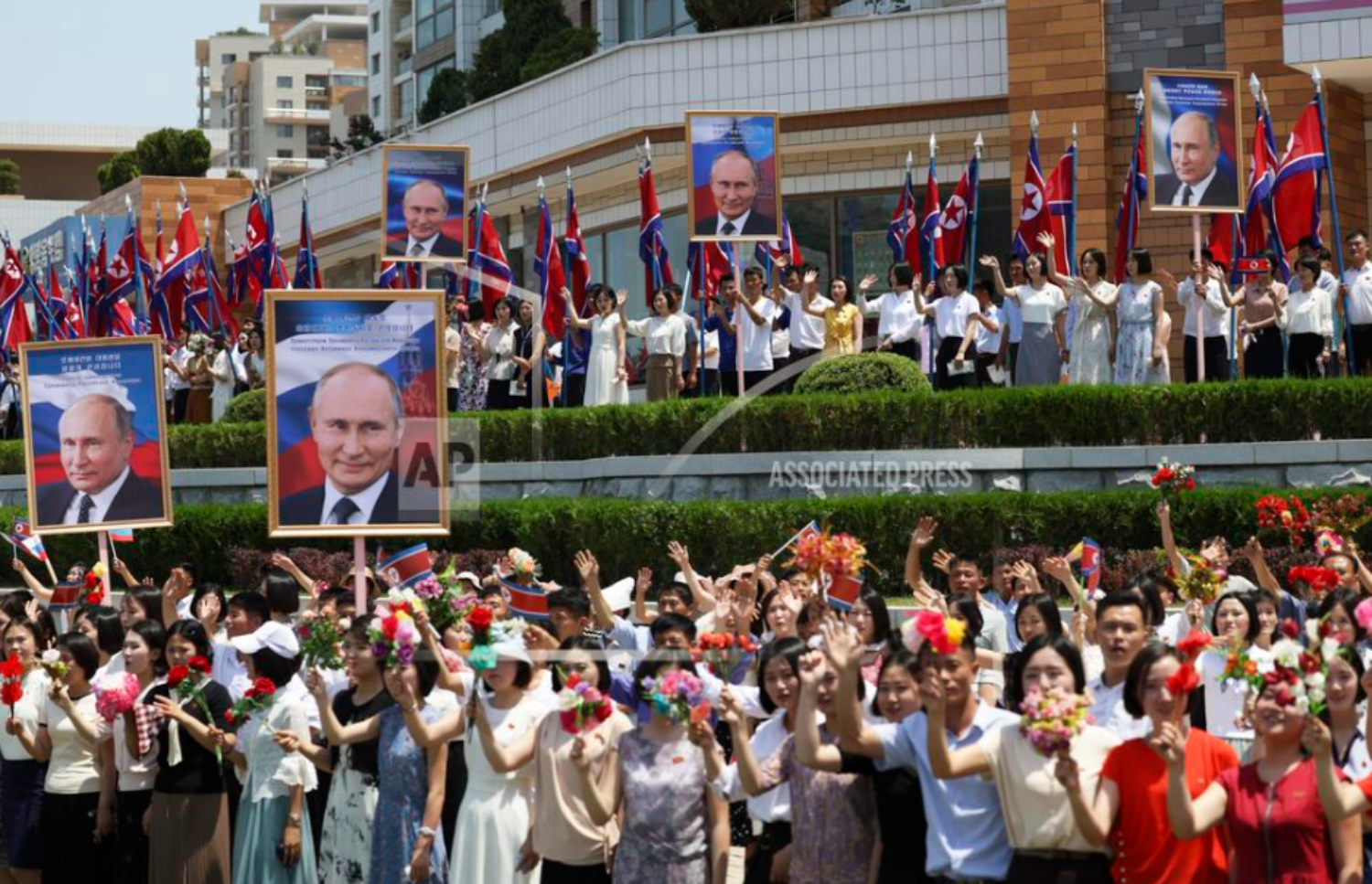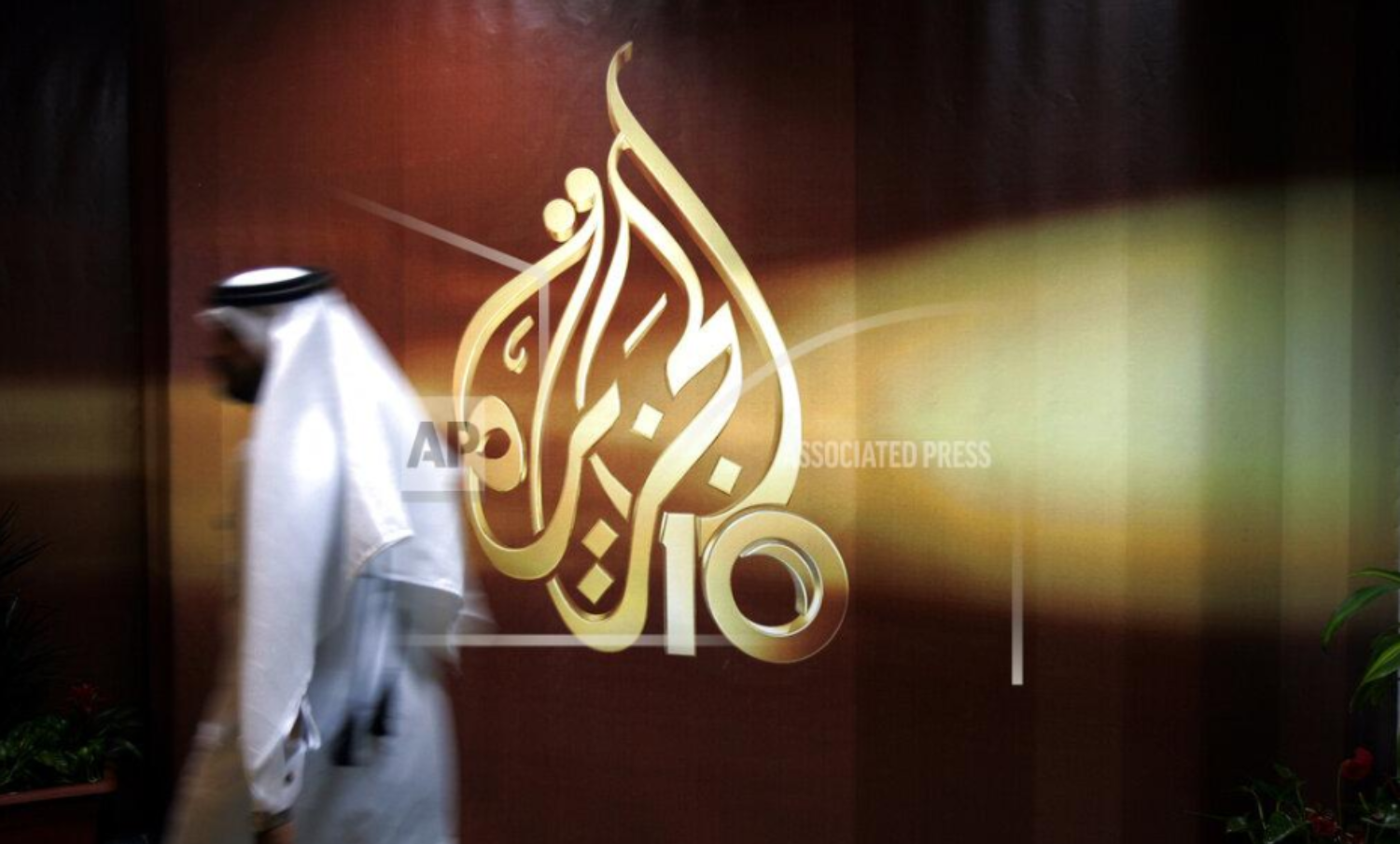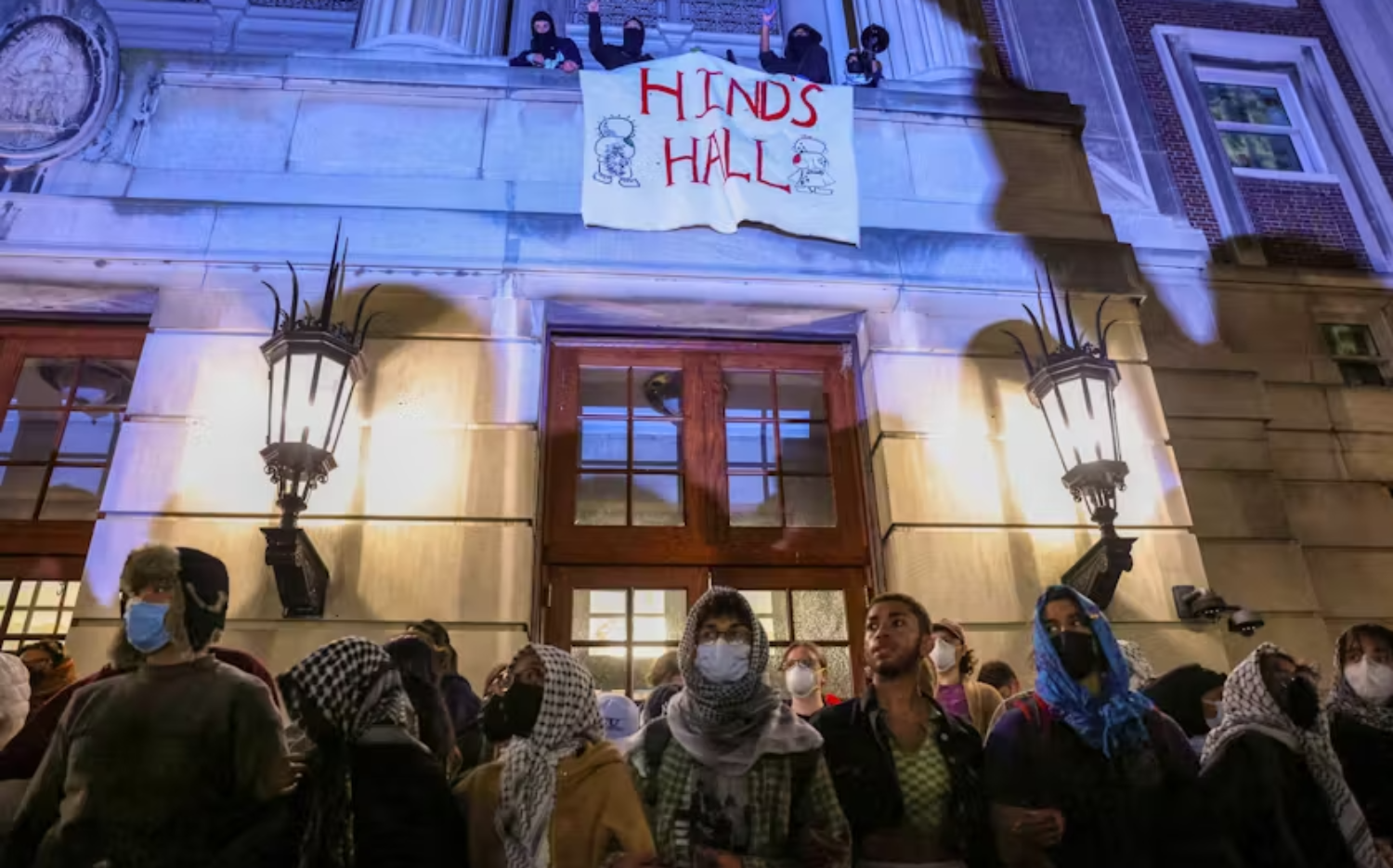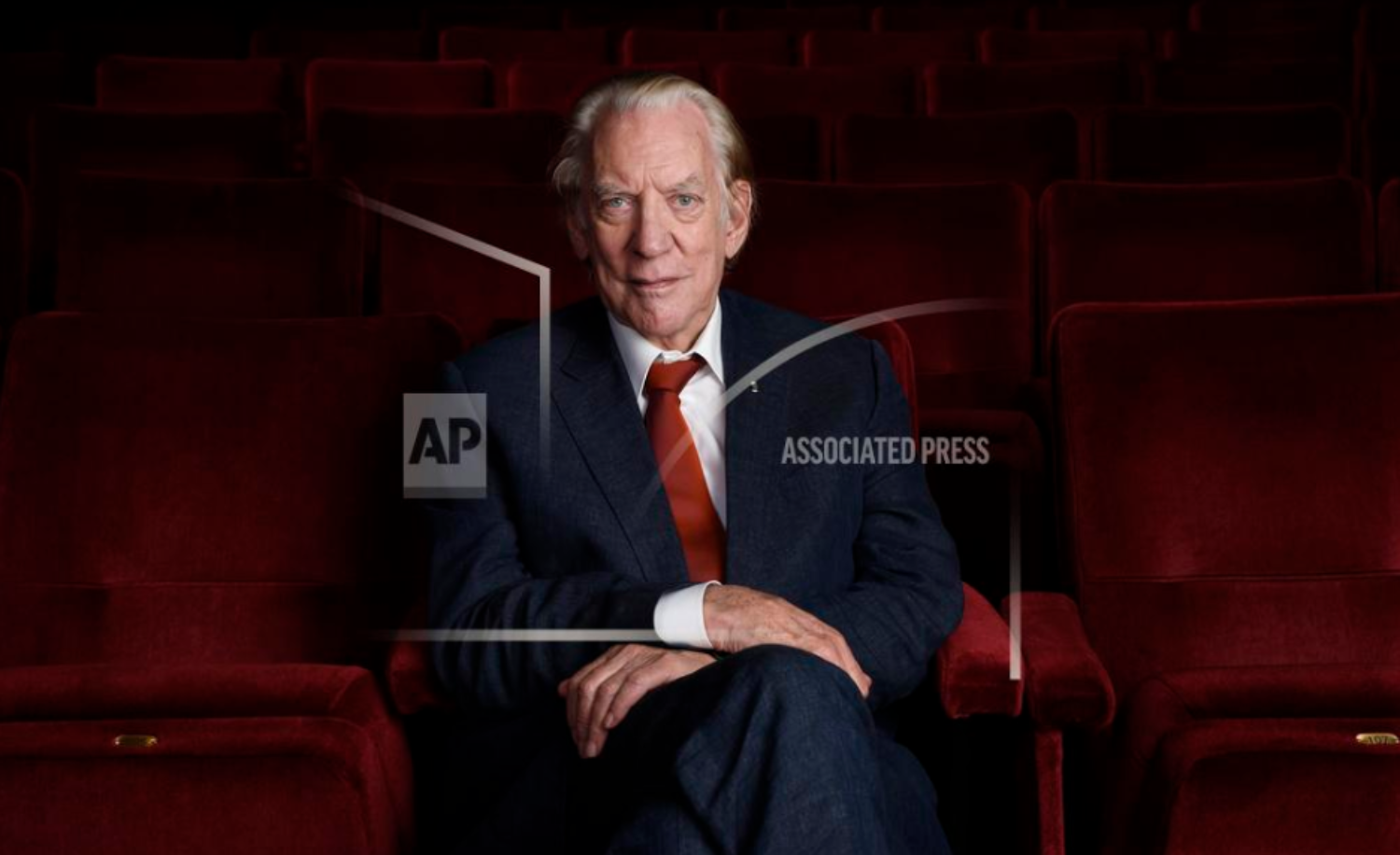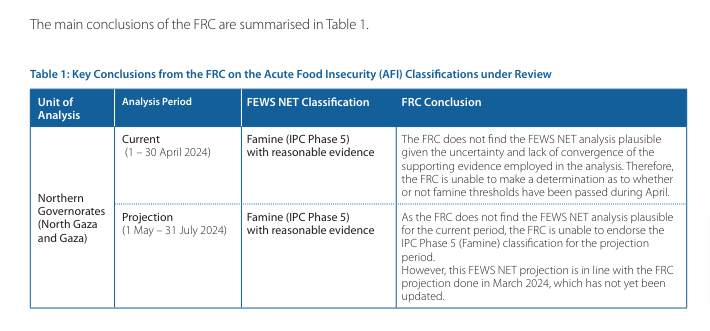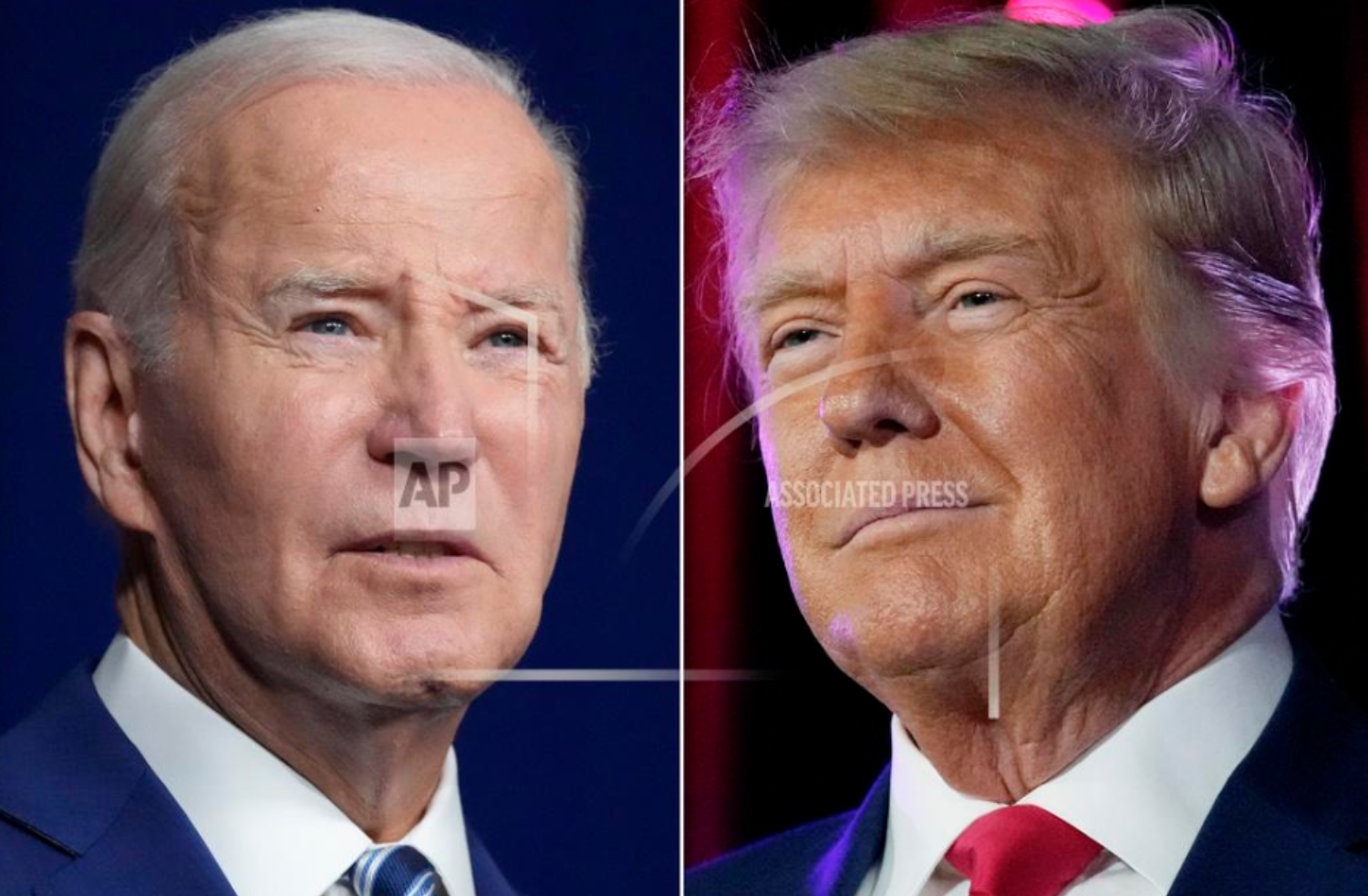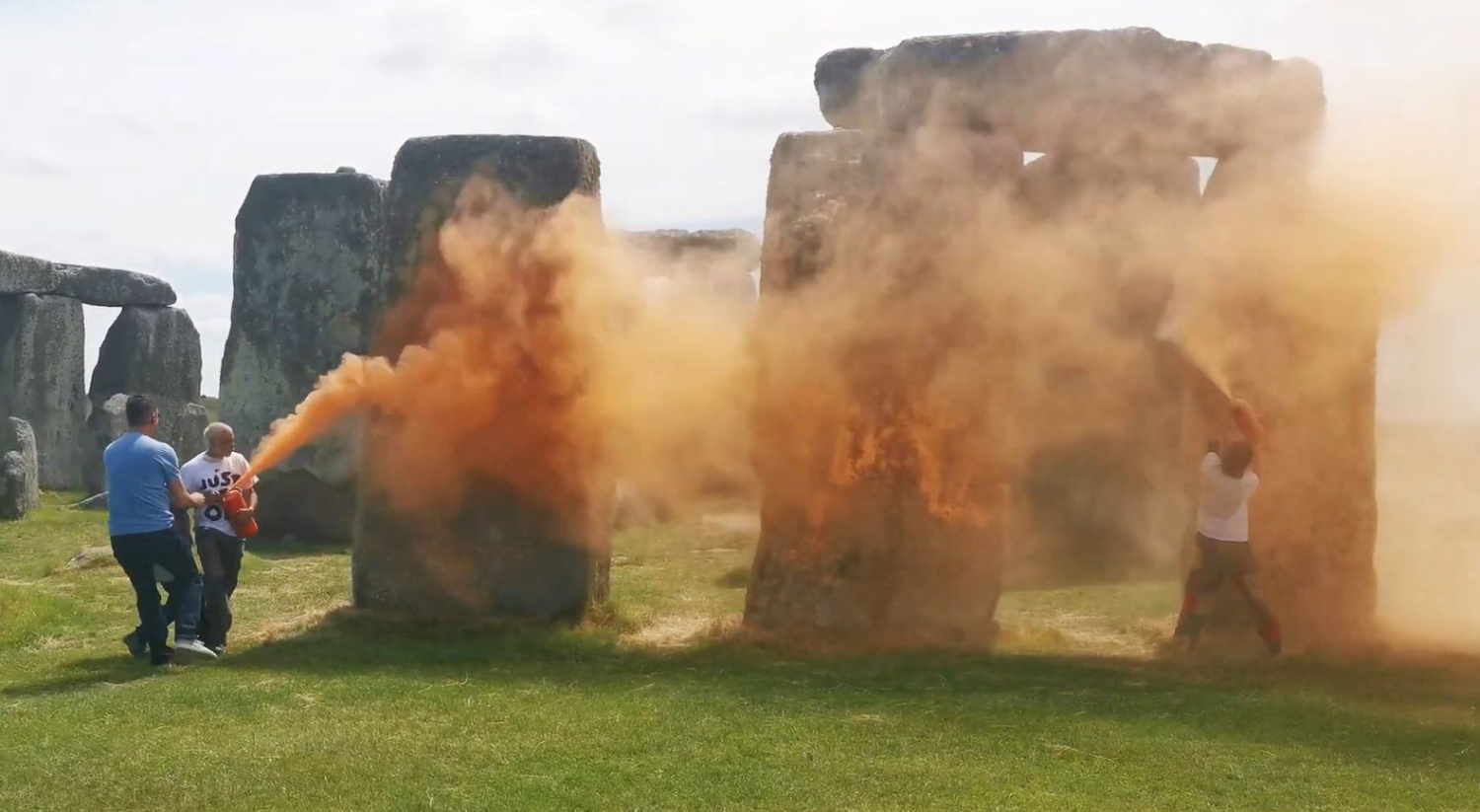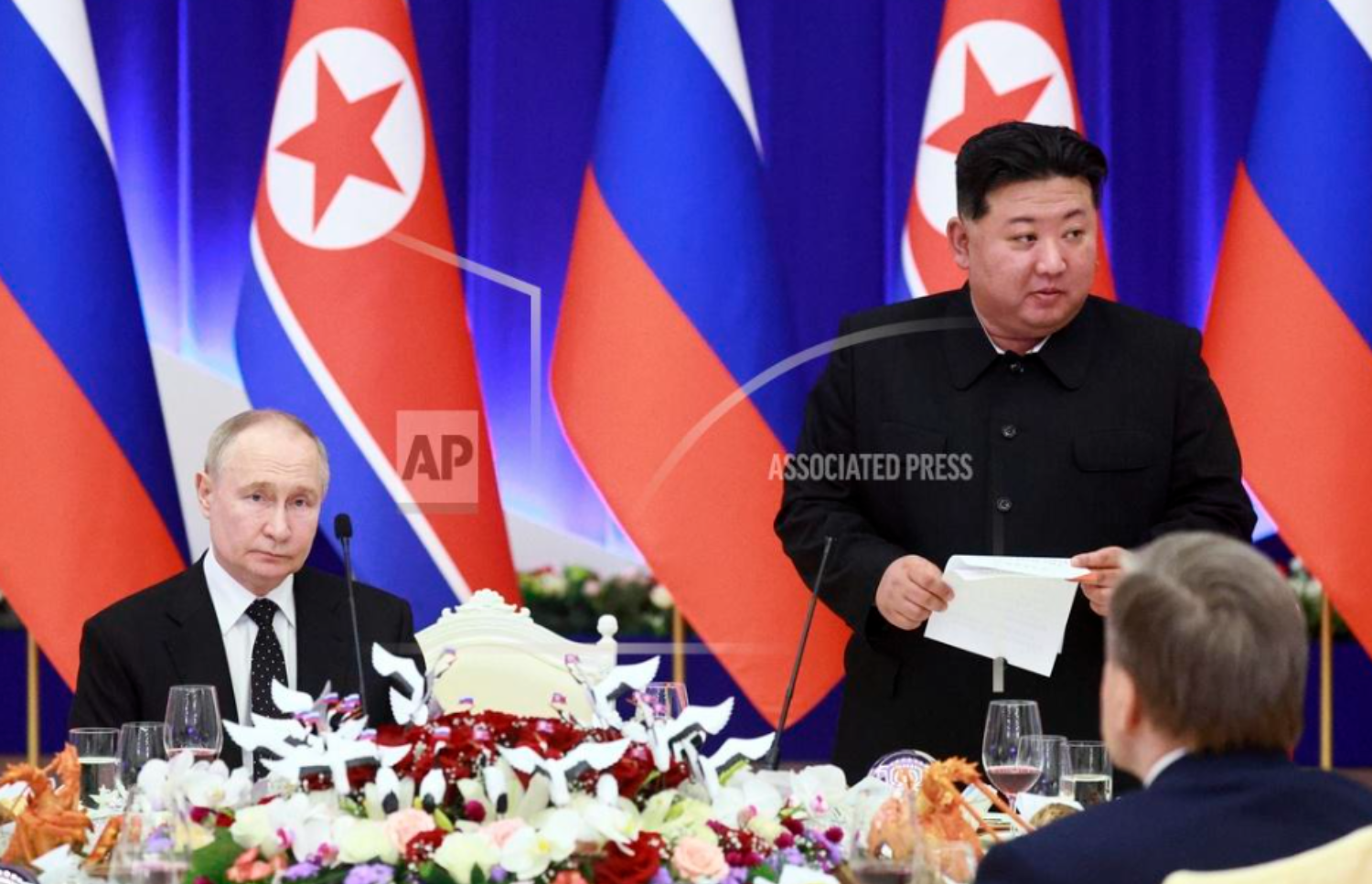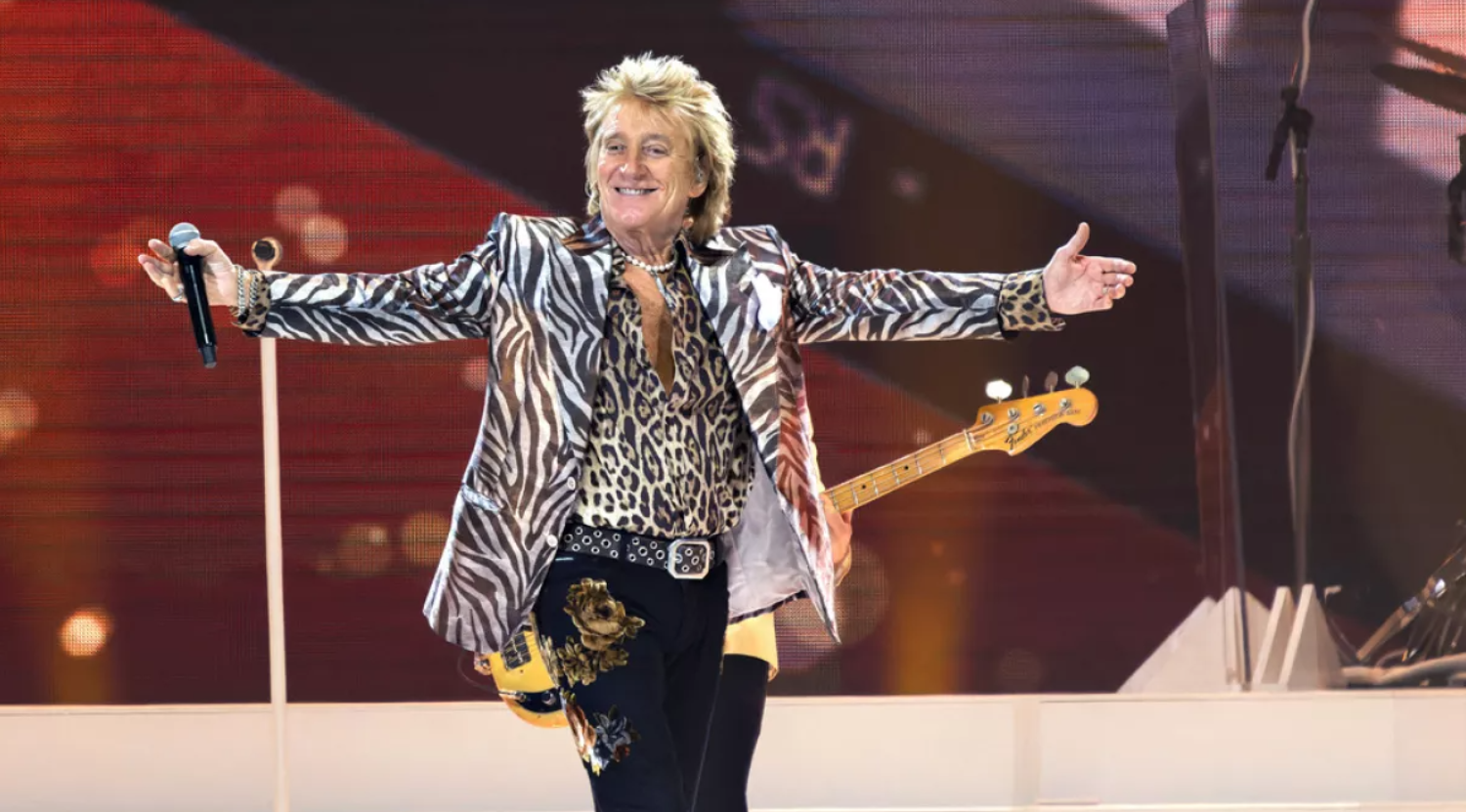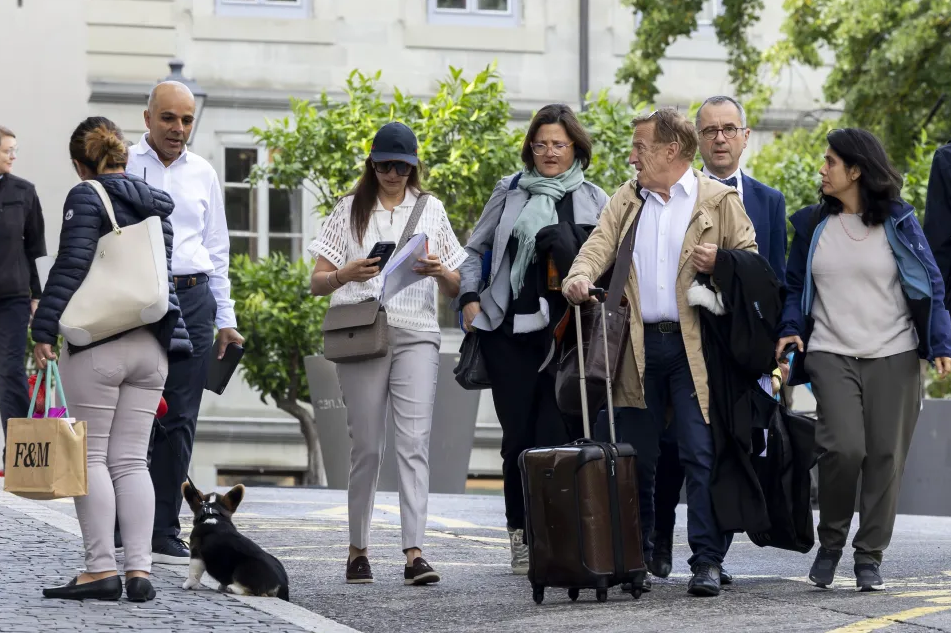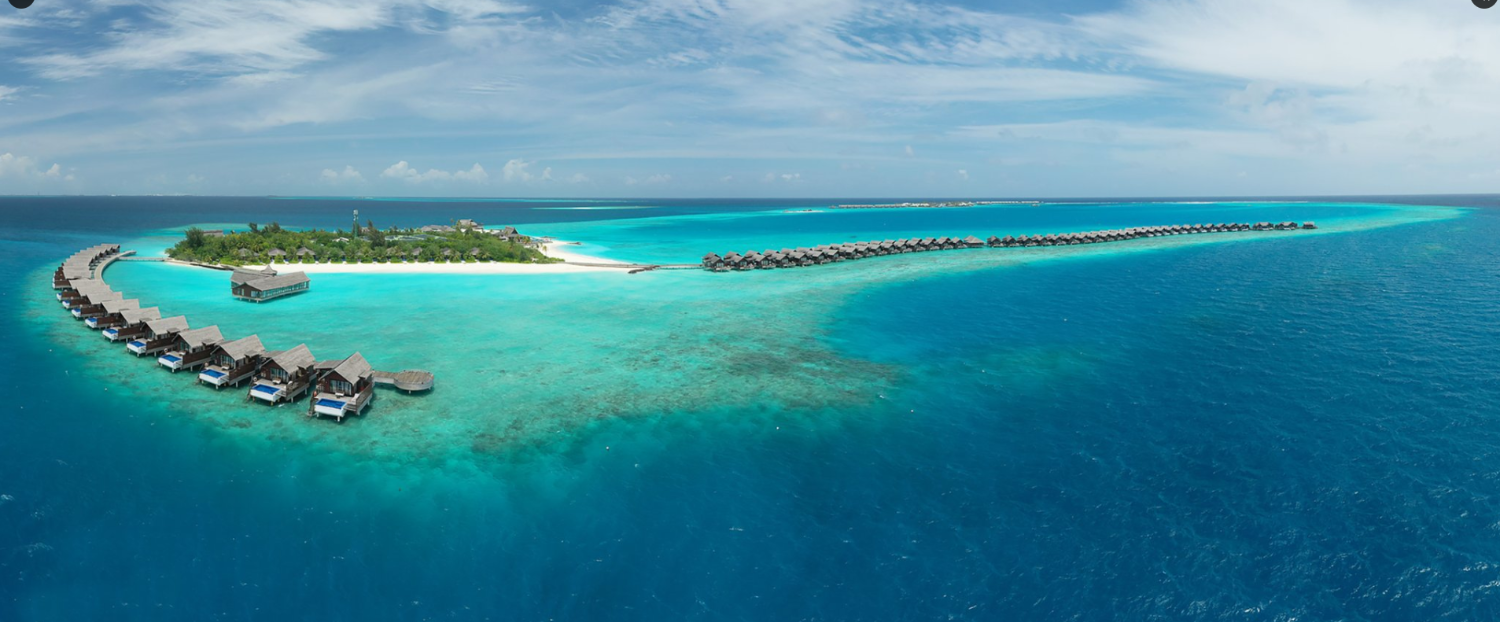-
Posts
10,072 -
Joined
-
Last visited
Content Type
Events
Forums
Downloads
Quizzes
Gallery
Blogs
Everything posted by Social Media
-
Former President Donald Trump is currently outpacing President Joe Biden in six pivotal battleground states, according to recent polling data from Emerson College and The Hill. The polls indicate that Trump has a lead over Biden in Arizona (47%-43%), Georgia (45%-41%), Michigan (46%-45%), Nevada (46%-43%), Pennsylvania (47%-45%), and Wisconsin (47%-44%). In addition, both candidates are tied at 45% in Minnesota, a state that has not favored a Republican presidential candidate since the Great Depression era. The Emerson College Polling Executive Director, Spencer Kimball, noted that despite Trump’s recent conviction on 34 business fraud charges by a Manhattan jury, the polling numbers for both candidates have remained relatively stable. "In our first polling in several key swing states since Trump’s conviction last month, there has been little movement, with support for both Trump and Biden staying largely consistent since November," Kimball explained, emphasizing that the results fall within the poll’s margin of error. The Trump campaign has argued that Minnesota is a competitive state for the upcoming election. "Independent voters break for Trump in all seven states – however, there has been some movement among these voters since April," Kimball said. He pointed out that while Trump’s support among independents in Arizona, Michigan, and Pennsylvania has dropped, Biden also saw declines among independents in Georgia and Nevada. The RealClearPolitics polling average corroborates these findings, showing Trump ahead of Biden in the same six battleground states with margins ranging from 0.2 percentage points in Michigan to 5.7 percentage points in Nevada. Interestingly, the Emerson/The Hill survey also indicates that Democratic candidates in key Senate races are outperforming Biden. In Arizona, Democrat Rep. Ruben Gallego leads Republican Kari Lake, 45% to 41%. In Pennsylvania, incumbent Democratic Senator Bob Casey is ahead of Republican David McCormick, 47% to 41%. Similar trends are observed in Michigan, Nevada, and Wisconsin, with Democratic candidates maintaining leads over their Republican counterparts. A significant portion of voters in the surveyed states disapproves of Biden's performance in office, with approval ratings ranging between 35% in Georgia and 39% in Michigan and Pennsylvania. The economy emerged as the top concern among voters across all states surveyed, with varying secondary issues such as threats to democracy, immigration, healthcare, and housing. In Arizona, a majority of voters (55%) expressed support for a ballot measure that would empower state and local police to arrest illegal immigrants and allow state judges to order deportations. Similarly, majorities in Arizona (56%) and Nevada (58%) indicated they would approve measures to enshrine the right to an abortion in their state constitutions. The polling data, collected from 1,000 registered voters in each state between June 13 and June 18, has a margin of error of plus or minus 3 percentage points. The first debate between Biden and Trump for the general election season is scheduled to take place next Thursday in Atlanta. Credit: NYP 2024-06-22 Get our Daily Newsletter - Click HERE to subscribe
-
Russian President Vladimir Putin has issued a stern warning to South Korea, cautioning against supplying arms to Ukraine amid its ongoing conflict with Russia. This warning follows Seoul's consideration of such a move in response to the newly forged pact between Russia and North Korea, which promises mutual assistance in the event of aggression against either nation. Putin, addressing reporters from Vietnam shortly after his state visit to North Korea, described the potential arming of Ukraine by South Korea as a "big mistake." He emphasized that such an action would provoke decisions from Moscow that would be displeasing to the South Korean leadership. The warning comes at a time of heightened geopolitical tensions, as Moscow and Pyongyang solidify their defense agreement, a development that Seoul has vehemently criticized. The Russian leader's comments underscore his readiness to retaliate should South Korea proceed with arming Ukraine. "Those who supply these weapons believe that they are not at war with us. I said, including in Pyongyang, that we then reserve the right to supply weapons to other regions of the world," Putin stated. This suggests a possible escalation in the arms race, with Russia hinting at arming Pyongyang in response to Western and allied support for Ukraine. South Korea's response to these developments has been measured but firm. Seoul's presidential office announced that it would consider "various options" regarding arms supplies to Ukraine, indicating that its stance would hinge on Russia's future actions. Additionally, South Korea summoned Russian Ambassador Georgy Zinoviev to express its strong protest against the Moscow-Pyongyang pact, demanding an immediate cessation of military cooperation with North Korea. While South Korea has provided humanitarian aid and military equipment to Ukraine, it has maintained a policy of not supplying lethal weapons to countries at war. This restraint is now being tested as the dynamics of international alliances shift. Ukraine, facing increased military collaboration between Russia and North Korea, has been hopeful that these developments might persuade Seoul to change its stance. During Putin's visit to North Korea, Kim Jong Un pledged full support for Russia's invasion of Ukraine, further solidifying the alliance between Moscow and Pyongyang. There is growing evidence that North Korean missiles are already being used by Russian forces in Ukraine, exacerbating the conflict and international concerns. John Kirby, spokesman for the U.S. National Security Council, commented on the Russia-North Korea agreement, stating it should "be of concern to any country that cares about maintaining peace and stability" in the region. He highlighted that the burgeoning defense relationship between Moscow and Pyongyang had been anticipated for months. Similarly, Japan's government spokesman Yoshimasa Hayashi expressed "serious concern" over potential military technology cooperation between Russia and North Korea, labeling the agreement as "unacceptable." Analysts warn that the Russia-North Korea treaty could have far-reaching implications beyond the immediate region. Not only does it signal the possibility of North Korea openly arming Russia, but it also raises the specter of Russian intervention in any new conflict on the Korean peninsula. The two Koreas remain technically at war, maintaining a heavily fortified border where tensions have recently escalated. In a separate but related incident, North Korean troops briefly crossed the border into South Korea before retreating after warning shots were fired by South Korean forces. This marks the third such incursion in less than three weeks, with the South Korean Joint Chiefs of Staff suggesting that the previous incidents were likely unintentional. Credit: BBC 2024-06-22 Get our Daily Newsletter - Click HERE to subscribe
-
Al Jazeera, the international news network funded by the state of Qatar, has long been a subject of controversy. While it is lauded in some circles for its in-depth reporting and coverage of global issues, there is another side to this media giant that raises significant concerns. Recent revelations have brought to light instances where individuals working as journalists for Al Jazeera were found to be affiliated with terrorist organizations such as Hamas and Palestinian Islamic Jihad. These allegations have serious implications, particularly in the context of media ethics and national security. Last month, The Washington Post reported that the Israeli government had shut down Al Jazeera’s operations in Israel due to its coverage from Gaza. The Post portrayed this move as a "dark day" for press freedom, highlighting the perceived overreach by the Israeli authorities. However, there are substantial reasons behind Israel’s decision to halt the network’s activities within its borders, one of the most compelling being that some Al Jazeera journalists reporting on Israel’s conflict with Gaza were themselves involved in terrorist activities. One such individual is Muhammad Washah, whom Al Jazeera presented as a dedicated journalist merely reporting the truth. Unfortunately for the network, Washah is also a senior commander in Hamas. His involvement with Hamas is extensive; he used to be in the group’s anti-tank missile unit and has been in charge of research and development for aerial weapons, known commonly as rockets, since 2022. This dual role allowed him to both create weapons aimed at Israel and report on the resultant destruction from the Israeli retaliations, painting a one-sided narrative that omits his involvement in the conflict. This duplicity was revealed when IDF soldiers in Gaza managed to obtain Washah’s laptop, which provided evidence of his true loyalties. This discovery highlights a significant conflict of interest and raises questions about the integrity of the reports coming from such journalists. Similar issues arose with two Al Jazeera "journalists" who were killed in an airstrike in Rafah in January. Hamza Wael Dahdouh, the son of Al Jazeera’s Gaza correspondent Wael Al-Dahdouh, was in a vehicle with a Hamas drone operator targeting Israeli soldiers when they were hit. Wael Dahdouh was not just a journalist; he was actively involved in Palestinian Islamic Jihad, participating in attacks against Israel. The network’s narrative of them being innocent journalists targeted by Israeli aggression fails to acknowledge their direct involvement in terrorist activities. Another Al Jazeera journalist, Ismail Abu Omar, was reported by the network as being badly injured in Khan Yunis in February. Al Jazeera claimed he had been "deliberately targeted" as part of a broader pattern of intimidation against their journalists. However, it turned out that Abu Omar was not just a correspondent but also the deputy commander of Hamas’ Eastern battalion in Khan Yunis. His involvement in the October 7 terrorist attack on Israel, where he praised the massacres and boasted about the atrocities, further discredits the image of him as merely a journalist. One of the most shocking revelations came earlier this month when the Israeli army rescued four hostages from homes in Gaza. One of the captors, Abdallah Aljamal, was found to be an Al Jazeera contributor. While writing articles about the humanitarian suffering in Gaza, he was simultaneously holding and torturing Israeli hostages in his home. This dual role of reporting and participating in terrorist activities is a new low even by Al Jazeera’s controversial standards. These instances illustrate a disturbing pattern where individuals associated with Al Jazeera are found to have significant ties to terrorist organizations, thus raising questions about the network’s credibility and the true nature of its operations. This is not a new issue for Al Jazeera, as its ties to Qatar, a state accused of supporting various extremist groups, have long been scrutinized. The network's ability to operate with these alleged connections while maintaining a facade of journalistic integrity is troubling. In a debate in Toronto, Al Jazeera contributor Mehdi Hasan, known for his extreme views, defended the network against accusations related to its coverage of the conflict. Despite working for a network funded by Qatar, an actual apartheid state where a small number of citizens are served by a large class of foreign workers with no human rights, Hasan criticized Israel and those questioning Al Jazeera's integrity. The network’s close ties with Hamas, whose leaders reside in Doha, Qatar, further complicate its position as a credible news source. Hasan’s return to Al Jazeera after being let go by MSNBC, which cited his increasingly extreme views, underscores the challenges in balancing journalistic freedom with accountability. His defense of Al Jazeera amidst these serious allegations raises important questions about media ethics and the role of journalists in conflict zones. The Washington Post's portrayal of Israel's shutdown of Al Jazeera as an attack on press freedom ignores the substantial evidence linking the network’s staff to terrorist activities. The presence of six former Al Jazeera journalists on the Post's foreign desk may explain the newspaper's biased coverage. This situation exemplifies how media organizations can become complicit in perpetuating biased narratives, further complicating the public's understanding of complex geopolitical issues. In conclusion, the allegations against Al Jazeera and its ties to terrorist organizations are serious and warrant thorough investigation. The network’s ability to operate with these connections while presenting itself as a credible news source is troubling and highlights the need for greater scrutiny of media organizations and their affiliations. As the debate over media integrity and national security continues, it is crucial to hold all news outlets accountable for their actions and the roles their employees play in conflicts around the world. Related Topics: Al Jazeera journalist reportedly moonlights as Hamas commander claims IDF Israeli Forces Rescue Hostages, Held By Al Jazeera & Palestine Chronicle Journalist Exposing What Others Prefer to Hide The Dismal State of Hamas Propoganda by Media Credit: NYP 2024-06-22 Get our Daily Newsletter - Click HERE to subscribe
-
Labour leader Sir Keir Starmer stated that Jeremy Corbyn would have made a better prime minister than Boris Johnson. During a special BBC Question Time programme, Starmer faced tough questions about his past support for Corbyn, whom he succeeded as Labour leader. Although initially reluctant to repeat his 2019 remark that Corbyn would have been a "great" prime minister, Starmer eventually conceded, "He would be a better prime minister… look what we got, Boris Johnson, a man who made massive promises, didn’t keep them, and then had to leave parliament in disgrace." This statement is particularly notable given Starmer's recent efforts to distance himself from Corbyn, a left-wing figure who has been ousted from the Labour Party and is now standing as an independent candidate. Despite Starmer's distancing, he defended his past support during the programme, explaining, "In 2019 I campaigned for the Labour Party as I’ve always campaigned for the Labour Party. I wanted good colleagues returned to parliament." The programme also highlighted Starmer's stance on various current issues, including the rental market. He criticized the practice of landlords "ripping off" tenants through bidding wars, where potential tenants are pitted against each other to drive up rents. Starmer proposed legislation to ban such practices if Labour wins office. He stated, "We have to stop the landlords ripping off tenants who are doing this bidding war: who’ll pay more until people are paying through the roof. We have to end that." However, when pressed for details by BBC presenter Fiona Bruce, Starmer provided limited specifics on how the plan would work. He emphasized the need for change, saying, "We can’t have this bidding war like this. We have to have a scheme in place to stop them driving rents up and up. Lots of renters are paying huge deposits and we have to stop that as well." Starmer also faced scrutiny over his shifting positions on other policies, including trans issues and NHS waiting lists. On trans issues, he clarified his stance, stating, "On the biology, I agree with what Tony Blair said in relation to men having penises and women having vaginas. That doesn’t help on the gender. There are some people who don’t identify with the gender that they are born into and they go through a lot of anxiety and distress. My view in life is to respect and give dignity to everyone." Regarding NHS waiting lists, Starmer admitted that it could take up to five years to return to normal levels. Initially hesitant to provide a timeline, he eventually stated, "We will start the work on waiting lists on day one in government... we will get those operations going as quickly as we can with staff." He later specified that backlogs would be addressed "over the course of the parliament," indicating a timeframe extending to 2029. Starmer also tackled the issue of immigration, a topic on which Labour has faced criticism for being perceived as too lenient. While he expressed a desire to reduce net migration, he refrained from setting a specific target. "Migration is at record levels under this Government. They’ve completely lost control. We need to get that number down. We need to get it significantly down," he said, adding, "I’m not going to put an arbitrary figure on it because every single politician who has put a number on it has never met that number." Throughout the programme, Starmer was repeatedly challenged on his policy reversals since becoming Labour leader. Critics have pointed out that he has abandoned many of the ten pledges he made during the 2020 Labour leadership contest. Defending his pragmatic approach, Starmer described himself as a "commonsense politician" and justified his decision to drop plans to nationalize energy firms, arguing it would be too costly and ineffective in reducing bills. The session on BBC Question Time showcased Starmer's attempts to navigate his past support for Corbyn while outlining his vision for Labour's future policies. His comments have sparked debate and highlighted the challenges he faces in balancing his leadership with the legacy of his predecessor. Credit: Daily Telegraph 2024-06-22 Get our Daily Newsletter - Click HERE to subscribe
-
Human Rights Watch (HRW) has accused China of systematically changing the names of hundreds of villages in the Xinjiang region, aiming to erase the culture and history of the Uyghur Muslim population. The allegations, detailed in a recent HRW report, suggest that between 2009 and 2023, the Chinese government replaced names related to Uyghur religion, history, or culture with terms that align with the ideology of the Chinese Communist Party (CCP), such as "harmony" and "happiness." This renaming initiative is part of a broader effort by Chinese authorities to assimilate the Uyghur minority into mainstream Chinese culture. The report, based on data from the National Bureau of Statistics of China, highlights that out of 25,000 villages in Xinjiang, 3,600 had their names changed during this period. While many of these changes might seem inconsequential, around one-fifth, or 630, specifically targeted names with significant cultural, historical, or religious connotations for the Uyghurs. Examples of the changes include the replacement of words like "Hoja," a title for a Sufi religious teacher, and "Sultan," a political or honorific title, with terms reflecting CCP ideology. One notable instance is the renaming of Aq Meschit, which means "white mosque" in Akto County, to Unity village in 2018. HRW claims these changes are an attempt to eliminate references to Uyghur culture and impose a homogenous Chinese identity. Xinjiang, home to the majority of China’s Uyghur Muslims, has been the focal point of international criticism due to allegations of human rights abuses. Reports from various human rights organizations and researchers have pointed to a pattern of systematic repression, including mass detentions, forced labor, and cultural assimilation policies aimed at eradicating Uyghur identity. Despite these allegations, Chinese authorities have consistently denied any wrongdoing. In response to the HRW report, a spokesperson from the Chinese embassy in London refuted the claims, asserting that "people of all ethnic groups enjoy freedom of religious belief under the law" and that the "languages and cultures of the Uyghurs and other ethnic minorities are protected and promoted." The HRW report was conducted in collaboration with the Norway-based organization Uyghur Hjelp, examining the names of villages over a 14-year period. The study underscores the deliberate nature of these name changes and suggests that they are part of a broader strategy to assimilate the Uyghur population and suppress any distinct cultural or religious identity that could challenge the CCP's narrative of unity and harmony. This latest report adds to the growing body of evidence suggesting that China's policies in Xinjiang are aimed at cultural genocide. International reactions have varied, with some governments and human rights organizations calling for sanctions and other punitive measures against China. However, Beijing continues to assert its sovereignty over Xinjiang and denies all allegations of human rights abuses, framing its policies as necessary for national security and social stability. The issue remains a contentious point in international relations, with significant implications for global human rights advocacy and the geopolitical dynamics involving China and the Western world. As the evidence of cultural erasure and human rights violations continues to mount, the international community faces increasing pressure to address these issues and hold the Chinese government accountable for its actions in Xinjiang. Credit: BBC 2024-06-22 Get our Daily Newsletter - Click HERE to subscribe
-
Two men have been charged with the horrific murder of a 12-year-old Texas girl. Jocelyn Nungaray's body was found floating in a creek near her Houston home on Monday. Johan Jose Rangel Martinez, 21, and Franklin Jose Pena Ramos, 26, have now been charged with capital murder following a manhunt for the suspects. Houston PD explained that the murder of anyone aged under 15 automatically results in a capital murder charge. They previously suggested the youngster had also been raped and sent off a sexual assault kit to obtain further evidence. Officials are also working with Homeland Security Officials to see whether Martinez and Ramos are illegal immigrants. The medical examiner confirmed that Jocelyn died by strangulation. Police issued images of two persons of interest seen with the pre teen hours before her death after she had snuck out of her home at around 10pm. Officers said the suspects, who lived in the same block as the girl, bumped into Jocelyn and walked with her to a convenience store. She called her 13-year-old boyfriend from the convenience store at around midnight that night. He reported hearing her talking to two adults, Houston Mayor John Whitmire announced at a news conference Tuesday. Her grieving mother, Alexis Nungary, is now struggling to process what has happened. 'It's like it's not real,' she told Click2Houston. She said she does not believe she knows the two men Jocelyn was seen with at the convenience store, whom the Houston Police Department have identified as 'persons of interest in the case.' But Alexis says she suspects they either live in the apartment complex or may have walked to the store from a nearby state park. 'I want karma to hit them, I'm angry,' Alexis added. 'They took advantage of her. 'She's so young, she's 12. I want justice. I want whoever has seen them to please call police. They took my baby away.' Credit: Daily Mail 2024-06-22 Get our Daily Newsletter - Click HERE to subscribe
-
Germany is on high alert for potential large-scale terror attacks similar to the Moscow concert hall assault, as it hosts the Euro 2024 football championship. German officials have expressed concerns that jihadist organizations, particularly Isis and its Afghan-based affiliate Isis-Khorasan (Isis-K), could target the event, which has entered its second week. Interior Minister Nancy Faeser and Thomas Haldenwang, head of Germany’s domestic intelligence agency (BfV), have highlighted the increased threat posed by Isis-K. This group claimed responsibility for the massacre at Moscow’s Crocus City Hall in March, raising fears of a similar attack during the Euro 2024. Haldenwang emphasized that Isis-K is "certainly the most dangerous group" and warned of potential large-scale, coordinated attacks. The warning comes amid heightened security measures for the Euro 2024, an event that could serve as an attractive target for jihadist terrorists. Isis-K’s propaganda organ, "Voice of Khorasan," recently released a threatening collage showing a militant with an assault rifle in a football stadium, captioned: “shoot the last goal!” A poll conducted by Hohenheim University revealed that 20 percent of people planned to avoid public viewing events of Euro 2024 matches due to fears of terror attacks. Haldenwang noted that Isis-K had successfully sent its supporters to Western Europe under the guise of refugees from Ukraine. The group has been actively inciting violence against "soft targets" in Europe, reminiscent of past terror rampages in Paris and Brussels. Germany's threat perception has intensified following Hamas’s attack on Israel on October 7 and the subsequent conflict in Gaza. Isis-K and other groups have been inciting violence against Israel and Jews worldwide, contributing to a surge in antisemitic crimes in Germany. Faeser reported a significant increase in antisemitic incidents, with individuals displaying Jewish symbols frequently subjected to verbal abuse or attacks. Isis-K, established in Afghanistan in 2015, has grown stronger since the US withdrawal from Kabul in 2021. Despite a counterinsurgency campaign by the Taliban, the group has expanded its international activities, including bombings in Iran, an attack on a church in Turkey, and a foiled plot to attack Sweden’s parliament. The BfV’s 2023 annual report indicates that Isis-K is increasingly targeting the West to assert its prominence within Isis. Last July, German police arrested seven individuals suspected of being Isis-K members, all from Central Asia who had entered Germany from Ukraine. They had planned attacks, scouted potential targets, and attempted to procure weapons. Earlier this month, authorities arrested Soufian T, a German-Moroccan-Polish national, for allegedly transferring $1,675 in cryptocurrency to an Isis-K account and attempting to secure a job as a steward for Euro 2024 public viewing events. Credit: The Times 2024-06-22 Get our Daily Newsletter - Click HERE to subscribe
-
In response to the ongoing violence in Gaza, a group of nearly 70 Democratic senators and representatives have called on Secretary of State Antony Blinken and Department of Homeland Security Secretary Alejandro Mayorkas to create pathways for Palestinian refugees to enter the United States. This initiative aims to help Palestinians, particularly those with U.S. citizen or lawful permanent resident relatives, escape the dire conditions in Gaza. The letter, sent to Blinken and Mayorkas on Thursday, was led by Senate Majority Whip Dick Durbin (D-Ill.) and Representatives Greg Casar (D-Texas), Pramila Jayapal (D-Wash.), and Debbie Dingell (D-Mich.). It highlights the urgency of granting a priority-2 (P-2) designation to Palestinians affected by the conflict. This designation would provide them special access to the U.S. Refugee Admissions Program, facilitating their resettlement based on their specific circumstances and needs. "Since the outbreak of the conflict in Gaza, many congressional offices have received distressing requests for assistance from constituents desperately seeking to reunite with their loved ones," the letter states. The lawmakers expressed appreciation for the Biden administration's efforts to evacuate American citizens from Gaza but emphasized that more needs to be done for those with familial ties to the U.S. who remain in peril. Durbin underscored the importance of the P-2 designation, saying, "By granting a P-2 designation for refugee processing for certain Palestinians, the United States will be giving hope to Americans with relatives in Gaza who have strong ties to our nation but remain stranded in life-threatening conditions." The ongoing war, which began over eight months ago following a Hamas attack on southern Israel that resulted in over 1,200 deaths and 250 captives, has led to a humanitarian crisis in Gaza. In light of these events, the White House is reportedly considering admitting a limited number of Palestinians with U.S.-based families as refugees, marking a significant shift in the U.S.'s refugee policy. Historically, the U.S. has resettled few Palestinians, with fewer than 600 among the over 400,000 refugees admitted in the past decade. Efforts are underway to facilitate the safe passage of U.S. citizens, lawful permanent residents, and their immediate families from Gaza. The State Department, working with Egypt and Israel, has assisted over 1,800 individuals in leaving Gaza through the Rafah crossing into Egypt. Earlier this year, President Biden directed Blinken and Mayorkas to defer the removal of certain Palestinians currently living in the U.S. for 18 months in response to the conflict. The lawmakers emphasized that Palestinian refugees would need to meet specific eligibility criteria, undergo interviews with U.S. Citizenship and Immigration Services, provide biometric data, and pass required medical and security screenings. The Democrats highlighted the refugee program as a crucial tool for the U.S. to de-escalate international conflicts and support regional stability. A spokesperson for Homeland Security confirmed that the agency responds to congressional inquiries through official channels, while a State Department spokesperson expressed concern over the famine in Gaza and stressed the need for safe distribution of aid and protection for humanitarian workers. As the situation in Gaza remains dire, the call for opening pathways for Palestinian refugees reflects a growing recognition of the humanitarian imperative to provide relief and reunite families separated by conflict. Credit: Hill 2024-06-22 Get our Daily Newsletter - Click HERE to subscribe
-
Manhattan District Attorney Alvin Bragg's office announced on Thursday that nearly all protesters charged with storming and occupying Columbia University’s campus during anti-Israel demonstrations will not face criminal charges. This decision has sparked outrage among law enforcement officials, higher education authorities, and Jewish advocates. In a dramatic NYPD raid on April 30, protesters were rounded up at Columbia University's Morningside Heights campus, resulting in charges against 46 individuals for trespassing in Hamilton Hall. However, the DA's office dismissed cases against 31 of these individuals, citing insufficient evidence, such as security footage, to tie them directly to the building's takeover. Michael Nussbaum, a member of the Jewish Community Relations Council of New York, expressed his frustration, stating, "This is turnstile justice. This is a green light for chaos, a green light for destroying property." The decision has been seen as undermining the severity of the incident and potentially encouraging similar actions in the future. Assistant District Attorney Stephen Millan explained that the prosecution faced significant challenges due to "extremely limited" video surveillance. During the police raid, cameras inside Hamilton Hall were covered, making it difficult to prove any damage or specific misconduct by individuals. Additionally, the protesters wore masks, complicating identification efforts. Millan also noted that none of the individuals whose charges were dropped had a criminal history, and the involvement of Columbia, Barnard, or Union Theological Seminary students and staff in the protests influenced the decision. These individuals face potential disciplinary action from their respective institutions. Among those whose charges were dropped is Aidan Parisi, a 27-year-old postgraduate student in social work at Columbia. However, James Carlson, considered a "possible leader" of the protests, remains charged with hate crime, assault, and petit larceny. Carlson allegedly torched an Israel supporter’s flag and hit the individual with a rock during an April demonstration. He is also accused of destroying a camera inside a holding cell at One Police Plaza. Carlson's attorney, Moira Meltzer-Cohen, has disputed the validity of these allegations. Prosecutors informed 14 other individuals, including 12 unaffiliated with the Ivy League school, that their cases would be dismissed under certain conditions. Defense attorney Matthew W. Daloisio argued for immediate dismissal, emphasizing that no one was harmed or property damaged. The decision to drop charges has been met with disbelief and anger from several police sources. One officer questioned the adequacy of body-worn camera footage as evidence, while another veteran cop criticized the DA's actions as giving protesters a mandate to escalate their behavior. Jeffrey Wiesenfeld, a former trustee on the governing board for CUNY, criticized the inability to identify any individuals involved in the protests. "How can it be that you can’t identify a single person? It’s not acceptable and it’s not good for the city," Wiesenfeld stated. This incident highlights the challenges faced by law enforcement and judicial systems in dealing with large-scale protests and the need for clear and effective evidence to pursue criminal charges. The decision by DA Bragg’s office underscores the complexity of balancing legal standards of proof with public demands for accountability and justice. Credit: NYP 2024-06-22 Get our Daily Newsletter - Click HERE to subscribe
-
Donald Sutherland, the renowned Canadian actor whose illustrious career spanned over half a century, has passed away at the age of 88 after a prolonged illness. His son, actor Kiefer Sutherland, shared the heartbreaking news, stating, "With a heavy heart, I tell you that my father, Donald Sutherland, has passed away. I personally think one of the most important actors in the history of film. Never daunted by a role, good, bad or ugly. He loved what he did and did what he loved, and one can never ask for more than that. A life well lived." Donald Sutherland's death has elicited a flood of tributes from colleagues, fans, and notable figures around the world. Cary Elwes, who starred alongside Sutherland in the 2001 television film *Uprising*, expressed his sorrow on Instagram, saying, "Our hearts are breaking for you. So grateful to have known [and] worked with him. Sending our love." Canadian Prime Minister Justin Trudeau also paid homage to Sutherland, reflecting on their first encounter: "My thoughts go out to Kiefer and the entire Sutherland family, as well as all Canadians who are no doubt saddened to learn, as I am right now. He was a man with a strong presence, a brilliance in his craft and truly, truly a great Canadian artist." Director Ron Howard, who worked with Sutherland on the 1991 film *Backdraft*, lauded him as "one of the most intelligent, interesting [and] engrossing film actors of all time." Born in New Brunswick, Canada, in 1935, Sutherland initially pursued a career as a radio news reporter before venturing to London in 1957 to study at the London Academy of Music and Dramatic Art. His early career saw him take on minor roles in British film and television, but it wasn't long before he made a significant impact in Hollywood. His breakout role came in 1967 with *The Dirty Dozen*, a war film that set the stage for his future success. The 1970s were a prolific period for Sutherland, with notable performances in *M*A*S*H* and *Kelly's Heroes*. He starred alongside Jane Fonda in Alan J. Pakula's 1971 thriller *Klute*, where their on-screen chemistry blossomed into a two-year romantic relationship. During this decade, he also showcased his versatility with roles ranging from an IRA member in *The Eagle Has Landed* to a pot-smoking college professor in *National Lampoon's Animal House*, and the lead in the 1978 remake of *Invasion of the Body Snatchers*. In the 1980s, Sutherland delivered a poignant performance as the father of a suicidal teenager in the Oscar-winning *Ordinary People*. The following decades saw him embrace television roles in series such as *Dirty Sexy Money* and *Commander-in-Chief*, while continuing to make impactful film appearances. Despite his extensive body of work, which includes nearly 200 credits, Sutherland was never nominated for an Oscar. However, he received an honorary Academy Award in 2017, recognizing his significant contributions to the film industry. Throughout his career, Sutherland was known for his political activism, particularly his opposition to the Vietnam War, which he protested alongside Jane Fonda. His socio-political beliefs often influenced his choice of roles, most notably his portrayal of the tyrannical President Snow in *The Hunger Games* series. In a 2015 interview with the BBC, he expressed hope that the film's message would resonate with young audiences, encouraging them to become more aware of global issues. Reflecting on the changes in the acting industry over his career, Sutherland remarked on the increased financial rewards for actors. "I don't think anybody of my generation became an actor to make money. It never occurred to me. I made £8 a week here [on stage in London]. When I starred in a play at the Royal Court, I made £17 a week, that was in 1964," he told the BBC. Even in his later years, Sutherland had no intention of retiring from his craft. "It's a passionate endeavour. Retirement for actors is spelt 'DEATH'," he said. Sutherland's legacy will continue to be celebrated, with his memoir, *Made Up, But Still True*, set for publication in November. His passing marks the end of an era for a remarkable actor whose talent, dedication, and passion for his craft have left an indelible mark on the film industry. Credit: BBC 2024-06-22 Get our Daily Newsletter - Click HERE to subscribe
-
Canada has officially designated Iran’s Islamic Revolutionary Guard Corps (IRGC) as a terrorist organization, a move announced by Public Safety Minister Dominic LeBlanc. This decision comes after years of pressure from opposition legislators and segments of the Iranian diaspora. LeBlanc described the designation as a “significant tool in fighting global terrorism,” highlighting that it will bar thousands of senior Iranian government officials, including top IRGC members, from entering Canada. The IRGC is a significant military, political, and economic force in Iran, closely linked to the Supreme Leader, Ayatollah Ali Khamenei. With over 190,000 active personnel, the IRGC operates its own ground forces, navy, and air force, overseeing Iran’s strategic weapons. The IRGC also influences other parts of the Middle East by providing money, weapons, technology, training, and advice to allied governments and armed groups through its Quds (Jerusalem) Force, which was already designated as a terrorist group by Canada. Wednesday’s announcement extends this designation to the entire IRGC. LeBlanc emphasized that the action "sends a strong message that Canada will use all of the tools at its disposal to combat the terrorist entity of the IRGC," citing the Iranian regime's consistent disregard for human rights and its destabilizing actions. Following this designation, current and former senior Iranian government officials in Canada may be investigated and potentially removed. Canada’s Foreign Affairs Minister Melanie Joly warned Canadians in Iran of the risk of arbitrary detention, urging them to return home and advising against travel to Iran. In response, Iran’s foreign ministry spokesperson, Nasser Kanaani, condemned the move as "an unwise and unconventional politically-motivated step," asserting that it would not affect the Revolutionary Guards' power. This designation marks a significant shift for Canada, especially after the shooting down of Flight PS752 by the IRGC in January 2020, which killed all 175 passengers on board, including 55 Canadian citizens and 30 permanent residents. The Canadian government, under Prime Minister Justin Trudeau, had previously hesitated to extend the terrorism designation to the IRGC due to concerns about unfairly targeting Iranians in Canada who opposed the regime but had served in the IRGC in the past. LeBlanc explained that the decision was a “deliberative process” based on advice from security services and foreign policy considerations. With this move, Canada becomes the second country in North America, after the United States, to label the IRGC as a terrorist organization, following the US's designation in 2019. The UK had indicated its intent to take a similar step as recently as 2023 but has not yet done so. Credit: BBC 2024-06-21 Get our Daily Newsletter - Click HERE to subscribe
-
Two years ago, in response to Russia's full-scale invasion of Ukraine, NATO adopted a "back to the future" strategy, emphasizing forward defense and deterrence. This shift marked a significant moment for the alliance, with allies committing to various measures to enhance their collective defense capabilities at the 2022 Madrid Summit. As NATO leaders gather in Washington for the alliance’s 75th anniversary summit, it is crucial to evaluate the progress made in bolstering NATO's defense capabilities. Significant advancements have been made in several areas, including defense spending, forward defense, high-readiness forces, command and control, collective defense exercises, and the integration of Finland and Sweden. While NATO appears ready for war, the question remains whether it is prepared to sustain and deter a protracted conflict. Achieving this goal requires increased spending, boosted industrial capacity, addressing critical capability gaps, and enhancing national resilience. The Latin adage "Si vis pacem, para bellum"—if you want peace, prepare for war—aptly describes NATO's purpose. Preparing for war is essential to averting it, and this logic of deterrence has guided NATO's actions, especially in light of recent developments in Ukraine. Russia's actions have validated fears that Vladimir Putin seeks to continue the Stalinist subjugation of Russia's neighboring regions. The conflict underscores the necessity of NATO's worst-case planning regarding Russia's ambitions. Putin's propensity for aggression and strategic miscalculation makes him a formidable and challenging adversary to deter. Despite substantial losses in Ukraine, Russia has "almost completely reconstituted militarily" to pre-war levels through national mobilization and a war economy supported by China, Iran, and North Korea. Beyond Ukraine, Russia is issuing nuclear threats against NATO and increasing hybrid threats across Europe. Several European leaders have warned that Russia could attack NATO allies within the next few years. China's assistance to Russia's military reconstitution and the potential for coordinated aggression between Moscow and Beijing pose significant challenges for NATO, especially concerning U.S. force posture in Europe. To paraphrase Prussian military theorist Carl von Clausewitz, what kind of war should NATO prepare for? Perhaps the most pressing scenario is a rapid territory seizure by Russian forces in the Baltic region. This scenario, frequently analyzed and wargamed, remains a critical concern. It represents the "most likely" and "most dangerous" course of action for Russia. While it might not be the likeliest overall scenario, it is a significant NATO-Russia war scenario due to the local force balance favoring Russia. NATO must be prepared for such an invasion, which risks nuclear escalation and is difficult to reverse. Any NATO operation to reclaim lost territory would require establishing air superiority and control of the Baltic Sea before amassing a significant local ground force. Even with NATO assurances, this situation could prompt Moscow to deploy non-strategic nuclear weapons, forcing NATO to threaten nuclear use to compel a Russian withdrawal and reestablish deterrence. This is why Baltic officials advocate for a "repel, don’t expel" strategy. NATO's new strategic concept emphasizes deterrence by denial and forward defense, akin to Cold War strategies. While deterrence by punishment, relying on U.S., UK, and French strategic nuclear forces, will continue to be crucial, forward-based "shield" forces will strengthen conventional deterrence and defense. One of the most notable achievements since the Madrid Summit is the inclusion of Finland and Sweden as full NATO members. Their formal invitation and eventual accession, following concessions from various allies, sent a strong political message to Moscow and enhanced NATO's deterrent capabilities. Finland and Sweden's integration is ongoing, facilitated by their prior deep military cooperation with NATO as Enhanced Opportunities Partners. Their formidable air power, developed over decades, is now integrated with NATO forces. Challenges remain in fully integrating Finland and Sweden, including developing appropriate command structures, adjusting regional plans, and addressing both nations' defense requirements across all domains. The United States and the United Kingdom play critical roles in this process, given recent Nordic defense cooperation agreements and the Joint Expeditionary Force's integration of Finnish and Swedish forces. NATO has significantly expanded its exercise program to focus on collective defense since Madrid. The recent Steadfast Defender was the largest NATO exercise since the Cold War, involving 90,000 personnel from all allies across all domains. It included maritime and amphibious drills in the High North and multi-domain exercises across Europe, emphasizing military mobility. The exercise program has also focused on multi-domain operations. In the air, Germany hosted its largest Air Defender exercise, while Vigilant Falcon tested Baltic air policing. At sea, Neptune Strike 2024 included five carrier strike groups in the Mediterranean, and Dynamic Mongoose focused on anti-submarine and anti-surface warfare. The 2023 Baltops exercise marked Finland's first participation as an ally. NATO has also tested new domains, such as cyber and space. The Vulcan Guard exercise focused on space operations, while the Locked Shields cyber defense exercise, hosted by the NATO Cooperative Cyber Defense Centre of Excellence in Estonia, remains the world’s largest. The Coalition Warrior Interoperability Exercise in June will test interoperability across all domains and NATO command and control systems. Despite substantial progress, challenges remain for NATO to be fully prepared for a protracted conflict. Allies must increase defense spending, enhance industrial capacity, address critical capability gaps, and bolster national resilience. As NATO celebrates its 75th anniversary, it has made significant strides in strengthening its collective defense since the Madrid Summit. The integration of Finland and Sweden, enhanced collective defense exercises, and a renewed focus on forward defense and deterrence have bolstered NATO's readiness. However, to be fully prepared for a protracted conflict and to effectively deter adversaries, NATO must continue to address remaining challenges and ensure its capabilities are robust and resilient. Credit: CSIS 2024-06-21 Get our Daily Newsletter - Click HERE to subscribe
-
In recent months, a widely accepted narrative has emerged claiming that Palestinians in Gaza are suffering from severe hunger. This narrative has been propagated by various entities, including the United Nations, the Biden administration, and major media outlets. In May, the head of the U.N. World Food Program declared a “full-blown famine” in northern Gaza, a claim echoed by reports in The New York Times and The Washington Post. These assertions have influenced significant actions, such as President Joe Biden's order for the U.S. Armed Forces to construct a floating pier to facilitate the flow of vital supplies to Gaza. Additionally, these allegations have led the International Criminal Court to request warrants for the arrest of Israeli Prime Minister Benjamin Netanyahu and Defense Minister Yoav Gallant, accusing them of war crimes for allegedly starving Palestinians. However, evidence has emerged that casts serious doubt on the existence of a famine in Gaza. The U.N.’s own Famine Review Committee admitted in a report that the claims about insufficient food being sent to Gaza were unfounded. The narrative appears to be based on a misleading interpretation of data, specifically the undercounting of private-sector food trucks and other deliveries. It is crucial to note that prior to October 7, daily supplies of food, fuel, and other materials were regularly trucked into Gaza from Israel, debunking the widely circulated accusation that Israel blockaded the Strip. Meanwhile, Egypt has maintained a closure of its border with Gaza. Despite these revelations, the truth about the situation in Gaza has not been widely reported. Seth Mandel, writing in Commentary, highlighted the findings of the U.N. report and other analyses that debunk the famine claims. Similarly, Seth Frantzman in The Jerusalem Post cited the work of two Columbia University professors who analyzed the data and refuted the idea that Israel is starving Palestinians. These studies show that food is indeed flowing into Gaza. While there are undoubtedly food distribution problems in Gaza due to the ongoing military conflict initiated by Hamas on October 7, these issues are not caused by a shortage of food. The quantity of supplies being shipped into Gaza from Israel is sufficient to feed its population. Israel's efforts to maintain the flow of aid into Gaza are unprecedented in the history of armed conflict. Traditionally, warring powers are not responsible for feeding their enemies, particularly those living under hostile combatants, as is the case with Palestinians under Hamas control. The U.S. has acknowledged that much of the aid entering Gaza via the floating pier has not reached its intended recipients, with Hamas operatives hijacking the supplies. This diversion of aid, intended for civilians, underscores the primary obstacle to the smooth flow of humanitarian assistance: the actions of Hamas. Additionally, smuggling activities have exacerbated the situation. Gangs affiliated with various terrorist movements have impeded efforts to distribute aid, with reports indicating that cigarette smuggling is a significant factor contributing to shortages. Trucks meant for transporting food and fuel are being used to carry contraband tobacco, further complicating the delivery of essential supplies. Given these facts, why do media outlets, international organizations, and the Biden administration continue to discuss starvation and blame Israel for this largely fictional catastrophe? The answer lies in the broader context of the conflict. Many of these entities have accepted the narrative that Israel is a “settler/colonial” and “apartheid” state, justifying almost any tactic used by its enemies. The inflated claims of a Gaza famine are part of a long list of falsehoods aimed at vilifying Israel since October 7. This conflict has seen media outlets amplify Hamas propaganda, including falsehoods about specific attacks and exaggerated casualty figures. These same outlets have been quick to report every accusation against Israel while downplaying or ignoring evidence to the contrary. For instance, even The New York Times, which has contributed to the famine narrative, admitted in a buried report that there is no food shortage in northern Gaza. The portrayal of Israel as committing genocide against Palestinians is a gross misrepresentation. The reality is that Hamas terrorists are responsible for the suffering of their own people, as they prioritize their military objectives over the welfare of civilians. Every death and hardship faced by Palestinians since October 7 is a direct result of Hamas's actions, including their practice of using civilians as human shields and diverting humanitarian aid for their own use. The mythical Gaza famine is a clear example of how the Palestinians, supported by certain international actors, are manipulating the narrative to cast Israel in a negative light. This propaganda campaign relies on age-old antisemitic tropes, accusing Jews of conspiring to harm others. It is essential for discerning individuals to recognize this for what it is: a 21st-century blood libel. By stripping away the emotionalism and partisan bias that color so much of contemporary journalism, the claim that Israel is starving the Palestinians is exposed as a baseless accusation. The ongoing conflict, marked by Hamas's relentless aggression and Israel's defensive measures, must be understood in its true context, free from the distortions of propaganda. Credit: JNS 2024-06-21 Get our Daily Newsletter - Click HERE to subscribe
-
Ahead of the European Championship match between England and Denmark, Scottish fans have been filmed mocking the late Queen Elizabeth II in a chant. The footage shows a small group of fans in Düsseldorf singing "Lizzie’s in a box," referring to the Queen, who passed away in September 2022. This incident occurred just before Prince William, the late Queen’s grandson, is set to attend the England-Denmark clash. In Frankfurt, where the match will take place, another group of Scottish fans sang the same offensive chant in the city’s main square. The chant has previously been used at Dundee United matches and has been condemned by various fan groups. This behavior has sparked frustration among the broader Tartan Army, who pride themselves on their reputation for good behavior. Additionally, fans from Dundee in Frankfurt sang an offensive song about England captain Harry Kane, with lyrics mocking him for "licking windows on the bus" and "eating spaghetti with his hands." This particular chant had already been criticized by fellow supporters during a visit to Belgium in 2019. Dundee, known for its nationalist sentiments, was one of the few areas that voted for Scottish independence in the 2014 referendum. Dundee United has had previous issues with fan behavior, including disrupting a minute’s silence for the late Queen in 2022 before a match against Rangers. Simultaneously, English fans have also been engaging in offensive behavior by chanting songs related to World War II. Despite repeated warnings from police, English fans have continued to sing "10 German Bombers," a song that mocks German casualties during the war. Police in Frankfurt have appealed for fans to behave and avoid such provocative songs. The offensive behaviors from both Scottish and English fans have highlighted tensions and have drawn criticism from authorities and fellow supporters alike. As police continue to appeal for respectful conduct, the incidents underscore the ongoing challenges in maintaining decorum among rival fans during major sporting events. Credit: Daily Telegraph 2024-06-21 Get our Daily Newsletter - Click HERE to subscribe
-
Buster Murdaugh, the son of convicted murderer Alex Murdaugh, has initiated a defamation lawsuit against major media companies, including Netflix and Warner Bros. Discovery. The legal action stems from documentary series produced by these companies, which Murdaugh alleges falsely implicated him in the 2015 death of Stephen Smith, a former high school classmate. The complaint, filed in South Carolina last Friday, contends that the documentaries on Warner Bros. Discovery’s Max streaming service and Netflix contained statements that were defamatory. According to the complaint, these statements “falsely accused the Plaintiff of being involved in the murder of Stephen Smith.” The documents further assert that the dissemination of these claims has caused Buster Murdaugh's reputation irreparable harm and inflicted significant mental anguish. Buster Murdaugh has consistently denied any involvement in Smith’s death. In a previous statement to NBC News, he addressed the persistent rumors, expressing his distress over the ongoing speculation amid his personal grief. “I have tried my best to ignore the vicious rumors about my involvement in Stephen Smith’s tragic death that continue to be published in the media as I grieve over the brutal murders of my mother and brother,” he stated. This lawsuit marks the latest chapter in the tumultuous saga of the Murdaugh family. Buster’s father, Alex Murdaugh, was sentenced to life imprisonment in July of the previous year for the 2021 murders of his wife, Maggie Murdaugh, and his son, Paul Murdaugh. The high-profile case has kept the Murdaugh family in the media spotlight, further complicating Buster Murdaugh’s efforts to distance himself from the allegations concerning Stephen Smith. Buster Murdaugh’s frustration with the ongoing rumors was palpable in his statement to NBC News, where he declared, “This has gone on far too long. These baseless rumors of my involvement with Stephen and his death are false. I unequivocally deny any involvement in his death, and my heart goes out to the Smith family.” The defamation lawsuit aims to hold Netflix and Warner Bros. Discovery accountable for the alleged false statements in their documentary content. The Hill has reached out to legal representatives for Murdaugh, Warner Bros. Discovery, and Netflix for comments on the matter. As of now, the media companies have not issued public responses to the lawsuit. The outcome of this lawsuit could have significant implications for how documentary content is produced and the responsibilities of media companies in verifying the accuracy of their portrayals. The case underscores the ongoing tension between the need for public interest journalism and the protection of individual reputations, particularly in high-profile cases involving intense media scrutiny. Buster Murdaugh’s legal battle is poised to become a critical test case for defamation law in the context of modern streaming services and documentary filmmaking. The resolution of this case will likely resonate beyond the immediate parties involved, influencing the standards and practices of the media industry at large. Credit: Hill 2024-06-21 Get our Daily Newsletter - Click HERE to subscribe
-
A recent Fox News poll reveals that President Biden has taken a slight lead over former President Trump in the national presidential race, with Biden securing 50 percent of the vote compared to Trump's 48 percent. This marks a significant moment for Biden, as it is the first time he has led Trump in a Fox News poll since October 2023 and the first time he has achieved 50 percent support in this election cycle. The poll shows a three-point improvement for Biden from the previous month, where Trump held a one-point lead. When third-party candidates are considered, Biden's lead narrows to one point, with 43 percent of the vote compared to Trump's 42 percent. Independent candidates Robert F. Kennedy Jr. and Cornel West garnered 10 percent and 2 percent support, respectively, while Green Party candidate Jill Stein also received 2 percent. This shift in polling could be influenced by Trump's recent felony conviction, as various polls have indicated a gain for Biden following the legal development. Notably, Biden holds a significant nine-point lead among independent voters, a crucial demographic in the election. This marks an 11-point shift from May when independents favored Trump by two points. Republican pollster Daron Shaw, who conducted the survey, noted that while Biden has made gains with women and senior voters, he has seen a decrease in support from younger voters and African Americans compared to 2020. Despite this, these gains have helped keep Biden competitive in the race. The poll also reflects a slight improvement in public perception of the economy under Biden's administration. Thirty-two percent of respondents reported having an excellent or good feeling about the economy, the highest positive rating during Biden's presidency. However, a majority of 56 percent still view the economy negatively. Biden's overall job approval rating stands at 45 percent, according to the poll. The survey included approximately 1,100 registered voters nationwide and has a margin of error of about 3 percent. Credit: Hill 2024-06-21 Get our Daily Newsletter - Click HERE to subscribe
-
Just Stop Oil (JSO) activists targeted the ancient monument of Stonehenge, spraying it with orange powder paint. This act led to the swift arrest of two individuals by Wiltshire police. Prime Minister Rishi Sunak was quick to condemn the action, labeling it a “disgraceful act of vandalism” against one of the world's oldest and most revered monuments. The incident unfolded around noon when the activists carried out their protest, shocking visitors and locals alike. Sunak expressed his dismay over the vandalism, stating, “This is a disgraceful act of vandalism to one of the UK’s and the world’s oldest and most important monuments.” His comments highlighted the severity with which the government views such acts against national heritage sites. Dale Vince, a notable Labour donor and former supporter of JSO, responded to Sunak’s call for condemnation. Vince, addressing the Prime Minister’s remarks directly, said, “Since Rishi Sunak has asked me personally to comment, I will. I don’t support what JSO did today, it’s that simple. But there are far worse actions we could focus on, far more harmful ones – like pushing two million children and their families into poverty.” Vince’s statement aimed to shift the focus towards broader social issues, even as he distanced himself from the specific actions of the activists. Labour leader Keir Starmer was equally unequivocal in his disapproval, describing the group’s actions as “pathetic.” Starmer emphasized the need for legal consequences, asserting, “Those responsible must face the full force of the law.” This stance reflects the broader political consensus on the importance of protecting national monuments from such acts of defacement. The protest did not go unchallenged by the public. Visitors at Stonehenge attempted to intervene, with one individual managing to wrestle a spray can away from a protester. This act of civic responsibility underscores the shared value placed on preserving cultural heritage. Wiltshire police responded promptly to the scene, arresting two suspects on charges of damaging the ancient monument. In a statement, the police confirmed, “We have arrested two people following an incident at Stonehenge this afternoon. At around noon, we responded to a report that orange paint had been sprayed on some of the stones by two suspects. Officers attended the scene and arrested two people on suspicion of damaging the ancient monument. Our inquiries are ongoing.” The timing of the protest coincided with preparations for the summer solstice, a period when thousands of druids and revelers travel to Stonehenge to celebrate. This added to the dismay of the community and visitors. Sean Moran, a guide at the site, voiced his frustration, saying, “It was devastating. I was very angry. We were having a great time and enjoying it when it happened. There’s living lichen on those stones. Biologists from around the world [come] to study it … Did they think of that?” Moran’s comments highlight the scientific and ecological importance of the site, which extends beyond its cultural and historical significance. King Arthur Pendragon, a senior druid and pagan priest, also condemned the protest. Pendragon, who is running as an independent parliamentary candidate for the area, stated, “Stonehenge is a living, working temple at times of celebration and pilgrimage such as the summer solstice and, as a well-known protester myself, I totally disapprove of such behavior as demonstrated by these people, who do nothing to enhance and everything to alienate any sympathy anyone has or had for their cause.” Pendragon’s remarks reflect the broader sentiment within the druid and pagan communities, who view such actions as disrespectful and counterproductive. Paul Anderson, visiting from Newcastle upon Tyne, recounted his experience, saying, “We were around the other side and we saw a lot of orange mist. I can’t see how that’s good publicity, doing something like that to an ancient monument. Coming from Newcastle, after the Sycamore Gap tree was felled, it beggars belief.” Anderson’s wife, Elaine, added, “It’s ruined the day, but not the holiday. I’m not going to let them. How dare you? It’s the last thing you’d expect.” Their reactions illustrate the broader impact on tourists who travel from afar to visit the historic site. Mike and Julie, tourists from the west coast of the United States, also expressed their disappointment. Mike lamented, “They are ruining it for people who have come from across the world to have their moment and see it.” Julie noted the closure of the path around the stones following the incident, adding to the disruption experienced by visitors. In a statement following the protest, Just Stop Oil defended their actions, describing it as “megalithic action.” They called for urgent governmental action to halt the extraction and burning of fossil fuels by 2030. The group argued, “Continuing to burn coal, oil and gas will result in the death of millions. We have to come together to defend humanity, or we risk everything. That’s why Just Stop Oil is demanding that our next government sign up to a legally binding treaty to phase out fossil fuels by 2030.” This declaration underscores the activists’ sense of urgency and the drastic measures they believe are necessary to combat climate change. The incident at Stonehenge has sparked a wide range of reactions, from condemnation to reflection on broader issues. While the actions of JSO have been widely criticized, they have also succeeded in drawing attention to the climate crisis, albeit in a highly contentious manner. The debate continues over the most effective and ethical ways to advocate for environmental sustainability while respecting cultural and historical landmarks. Credit: The Guardian 2024-06-21 Get our Daily Newsletter - Click HERE to subscribe
-
Louisiana has enacted a controversial new law mandating that every public school classroom, from elementary through university level, display a poster of the Ten Commandments. Governor Jeff Landry signed the Republican-backed measure into law on Wednesday, characterizing the commandments as "the foundational documents of our state and national government." This legislation positions Louisiana as the first state in the United States to impose such a requirement. The law specifies that the Ten Commandments must be displayed prominently in each classroom in a "large, easily readable font" on an 11-inch by 14-inch poster. Additionally, the poster must include a four-paragraph context statement that outlines the historical role of the commandments in American public education over nearly three centuries. The state law stipulates that these posters must be in place by 2025 in all classrooms that receive state funding, although it does not provide state funds to cover the cost of the posters themselves. This measure is likely to face legal challenges from civil rights organizations, which argue that it violates the First Amendment to the U.S. Constitution. Specifically, they point to the Establishment Clause, which states, "Congress shall make no law respecting an establishment of religion, or prohibiting the free exercise thereof." Critics argue that the requirement infringes upon the constitutional principle of the separation of church and state. The new law is part of a broader trend among Republican-led states, including Texas, Oklahoma, and Utah, which have proposed similar legislation. However, the constitutionality of such measures has been consistently questioned. In 1980, the U.S. Supreme Court struck down a similar law in Kentucky that required the display of the Ten Commandments in elementary and high schools. In a narrow 5-4 decision, the court ruled that the Kentucky law lacked a secular legislative purpose and was "plainly religious in nature." The court's decision highlighted that the commandments included directives on religious observance, such as worshiping God and keeping the Sabbath day holy, in addition to prohibitions against criminal activities like killing and stealing. Governor Landry and supporters of the law argue that the Ten Commandments have played a significant role in shaping American values and legal principles. However, opponents contend that mandating their display in public classrooms crosses a constitutional line, promoting a specific religious viewpoint in a setting that should remain secular and inclusive. As this law takes effect, the anticipated legal challenges will likely focus on whether the state’s actions can be reconciled with the Supreme Court's previous rulings on similar issues. The outcome of these challenges could have significant implications for the interpretation of the Establishment Clause and the ongoing debate over the role of religion in public spaces and institutions in the United States. Credit: BBC 2024-06-22 Get our Daily Newsletter - Click HERE to subscribe
-

Former CDC Director Predicts Imminent Bird Flu Pandemic
Social Media replied to Social Media's topic in World News
A post with conspiracy nonsense has been removed @BangkokHank -
Vladimir Putin and Kim Jong Un have formalized a significant agreement in Pyongyang, pledging mutual assistance in the event of "aggression" against either Russia or North Korea. This development was announced by Putin following his first visit to North Korea since 2000, marking a critical moment in the burgeoning alliance between the two nations. Kim Jong Un emphasized that the pact elevated their relationship to "a new, high level of alliance." The agreement, which has raised concerns in the West, signifies a deepening partnership that could have considerable global ramifications. Observers suggest that a mutual defense treaty could see Russia supporting North Korea in future Korean Peninsula conflicts, while North Korea could openly assist Russia in its ongoing war in Ukraine. Kim is already accused of supplying Russia with weapons, while Putin is believed to be providing North Korea with space technology that could enhance its missile program. This alliance, strengthened by their recent comprehensive partnership agreement, includes a clause for mutual assistance against aggression, though Putin did not specify what would constitute such aggression. Facing battlefield difficulties in Ukraine, particularly with dwindling weapon supplies, Putin's meeting with Kim in September likely included discussions on military cooperation and potential arms deals. Evidence suggests Russia has been using North Korean missiles in Ukraine. Meanwhile, Western nations, including the U.S. and NATO allies, have permitted Ukraine to use Western weapons on Russian soil, a move that Kyiv hopes will shift the conflict in its favor. Putin has warned of consequences and suggested arming adversaries of the West with long-range weapons, a capability North Korea has been developing. He criticized the West's decisions as violations of international obligations and condemned sanctions on Russia and North Korea, asserting that both nations reject "the language of blackmail and diktat." Kim praised the treaty as a historic milestone in their relations and expressed unwavering support for Russia in its war on Ukraine. The pact is likely to provoke Seoul, which had previously cautioned Russia against exceeding certain limits in its alliance with North Korea. South Korean National Security Adviser Chang Ho-jin emphasized that Russia should consider which country would be more important to it post-Ukraine war. Experts, such as Rachel Lee from the Stimson Center, warn that this treaty could significantly impact the region and the world. Continued North Korean weapons supplies to Russia, combined with Russian military technology support to North Korea, could exacerbate global weapons proliferation issues. Chad O’Carroll of NK News highlighted the possibility of North Korean soldiers assisting Russia in Ukraine. Putin's visit to Pyongyang was marked by elaborate ceremonies, including a red-carpet welcome and choreographed displays of North Korean propaganda. He was greeted by Kim with an embrace upon arrival and was ferried through the capital, which was brightly lit despite the country's chronic electricity shortages. The spectacle featured massive crowds, military parades, and grand portraits of the two leaders, reflecting North Korea's traditional display of fervent devotion. During his stay, Putin attended a gala concert and state banquet, where he received a second luxury Aurus car from Kim, along with other ceremonial gifts. Kim, in turn, received a ceremonial admiral's dagger and a tea set from Putin. This visit underscored the historical significance of their alliance, with Putin last visiting Pyongyang in 2000 to meet Kim's father, Kim Jong Il. North Korea's economy has deteriorated under international sanctions, prompting Kim to seek crucial aid from Russia, including food, fuel, foreign currency, and technology. Russia played a pivotal role in supporting the Kim regime during Soviet times. Putin had promised to assist North Korea in developing its satellites, which the U.S. believes are intended to bolster its ballistic missile capabilities. This alliance not only strengthens their mutual support but also aims to counterbalance international sanctions by creating alternative networks of cooperation. Jeffrey Lewis from the James Martin Center for Nonproliferation Studies notes that this partnership is part of a broader effort to establish a multipolar world order, challenging the current international system led by the U.S. and its allies. A wary Beijing is watching China, the dominant power in the region, remains a critical factor in this equation. Despite the apparent camaraderie between Putin and Kim, their alliance must navigate China's influence. Reports suggest Beijing discouraged Putin from visiting Pyongyang immediately after meeting Xi Jinping, reflecting China's strategic considerations. Xi faces pressure from the U.S. and Europe to reduce support for Moscow and curb the sale of components fueling Russia's war in Ukraine. China's relationship with North Korea is also complex. While providing political cover for Kim's nuclear ambitions, Beijing is wary of an emboldened North Korea. Kim's weapons tests have led to increased U.S. military presence in the region, heightening China's concerns about an "East Asian NATO." Russia might reconsider extensive military technology transfers to North Korea to avoid straining its relationship with China, a vital ally providing essential economic support. Similarly, North Korea's reliance on China for trade and resources underscores the limits of its partnership with Russia. Despite their declarations against the "imperialist West," the alliance between Russia and North Korea appears transactional and strategically limited compared to their ties with China. The Comprehensive Strategic Partnership between Russia and North Korea does not guarantee sustained ammunition supplies, as North Korea must also maintain its own defenses against South Korea. Analysts point out the potential technical and logistical challenges in aligning the two nations' military systems, as well as the long-standing priority differences in their relations. Ultimately, while the Russia-North Korea alliance signals a significant geopolitical shift, both nations remain heavily dependent on China. Their relationship with Beijing is crucial, balancing their wartime partnership with the broader strategic imperatives shaped by China's global ambitions and economic interdependencies. Credit: BBC 2024-06-20 Get our Daily Newsletter - Click HERE to subscribe
-
- 1
-

-
Sir Rod Stewart, the iconic British rock star, encountered an unexpected reaction during his One Last Time tour performance in Leipzig, Germany, on June 14. As he performed his 1991 hit "Rhythm of My Heart," which he has long described as an anti-war anthem, the crowd's response was notably divided. The performance took a poignant turn when the Ukrainian flag was projected on the screen behind him, followed by images of Ukraine's President Volodymyr Zelenskyy. This tribute to Ukraine, amidst the ongoing conflict with Russia, led to loud boos, shouts, and whistles from a segment of the audience. Videos circulating on social media captured the moment when Sir Rod saluted the Ukrainian president, only to be met with jeers. The reasons behind the crowd's reaction remain speculative, but some suggest it may be related to the controversial EU sanctions on Russia's natural gas, which have had significant economic implications for Germany. Despite the mixed response, Sir Rod's stance on the Ukraine-Russia conflict has been clear and consistent. In 2022, he dedicated an anti-war song to Ukraine during his tour, expressing his deep concern over the war. "I dedicate that to the Ukrainians, and we bring up a Ukrainian flag and Zelensky [on the big screen]," he explained. The shocking scenes of the war deeply moved him and his wife, Penny Lancaster. "When the war started, in this household we were shocked beyond shock. Because I was born just after the war and so my family came through the Second World War, and to see another ground war with tanks, I never thought we’d see the day, it was just shocking and it’s just beyond belief now," Sir Rod remarked. Further demonstrating his support, Sir Rod revealed that he had rented and furnished a home for a family of seven Ukrainian refugees. Recounting his feelings during the early days of the war, he said, "Words couldn't describe what we were watching. The bombing of innocent children, the bombing of hospitals and playgrounds. Like everyone else, we were completely beside ourselves. I don't wish that on anyone. This is evil, pure evil." The legendary singer’s strong condemnation of Russia's actions in Ukraine and his support for the Ukrainian people have been a significant part of his public stance over the past few years. His decision to highlight these issues during his tour performances underscores his commitment to raising awareness about the conflict, despite the mixed reactions it might provoke. As Sir Rod continues his tour with a performance in Hamburg’s Barclays Arena, it remains to be seen whether he will alter his show in response to the Leipzig audience’s reaction. Regardless of the response, his dedication to supporting Ukraine is unwavering. Credit: Daily Express 2024-06-20 Get our Daily Newsletter - Click HERE to subscribe
-
Britain's wealthiest family, the Hinduja family, has come under intense scrutiny as allegations of severe exploitation of their domestic staff have surfaced in a Geneva court. Prosecutors revealed shocking disparities in their spending, highlighting that the family spent more on their pet dog than on the wages of a servant. This revelation comes amidst accusations of trafficking and exploitation involving four family members. The servant in question was reportedly paid a mere seven Swiss francs (£6.19) to work up to 18 hours a day, seven days a week. In stark contrast, a budget document labeled “Pets” indicated that the family spent 8,584 Swiss francs in a year on their dog. The Hinduja family, with an estimated net worth of £37 billion, is facing serious legal consequences. Prosecutor Yves Bertossa has called for prison sentences of up to five-and-a-half years for the accused family members and demanded that they pay 3.5 million Swiss francs to a compensation fund for staff, along with 1 million Swiss francs in court costs. The allegations against the family include claims that staff contracts did not specify working hours or days off, and that employee passports were confiscated, restricting their ability to leave the house without permission. The lawsuit targets four family members: Prakash Hinduja, 78, his wife Kamal, their son Ajay, and his wife Namrata. Defense lawyers for the Hinduja family have dismissed the accusations, citing testimonies from workers who claimed they were treated with dignity and respect. Ajay Hinduja's lawyer, Yael Hayat, argued that the overall compensation for staff included board and lodging, and that cash salaries alone did not fully represent the value of their pay. Hayat also contested the claim of 18-hour workdays, suggesting that time spent watching movies with the children, for example, should not be considered work. Ajay Hinduja testified that he was not fully aware of the employees' working conditions, as recruitment was managed by the Hinduja Group in India. He stated that the family has since reformed their hiring practices, now employing staff locally through third-party agencies and ensuring formal payment structures. The Hinduja family, renowned for their vast wealth and influence, were ranked as Britain’s richest family by the Sunday Times Rich List, with a net worth of £37.2 billion. The family's patriarch, Srichand Hinduja, who passed away in 2023, was instrumental in building the family’s business empire. This empire includes a range of companies in India across sectors such as banking, commercial vehicle sales, and chemicals. In the UK, the family owns several high-value properties, including a historic 18th-century home near Buckingham Palace and the Old War Office building in Whitehall. They also hold interests in parts of the defunct British motoring giant British Leyland. The Hinduja family's business origins date back to 1914 when Parmanand Hinduja, the family’s founder, began trading spices, carpets, and tea in British India, in what is now Pakistan. The family expanded internationally, opening a branch in Iran in 1919. However, they were forced to relocate their operations to London following the Iranian Revolution in 1979. Srichand and Gopichand co-chaired the group from London, while Prakash managed operations in Switzerland, and Ashok handled the Indian branch. Their wealth primarily stems from exports of oil and telecommunications equipment, as well as their business of dubbing Hindi films into Persian for the Iranian market. The legal proceedings in Geneva have cast a shadow over the family's reputation, drawing attention to the stark contrasts in their lavish lifestyle and the alleged mistreatment of their employees. The outcome of this case could have significant implications for the Hinduja family and their vast business empire. Credit: Independent | Daily Beast 2024-06-20 Get our Daily Newsletter - Click HERE to subscribe
-
The Maldives government is grappling with a contentious decision to ban Israeli tourists, reflecting the complexities of national sentiment and economic reliance on tourism. The initial announcement on June 10, followed by a swift move in Parliament to amend immigration laws, aimed to bar entry to Israeli passport holders and those with dual citizenship. However, this policy has encountered significant pushback and reconsideration. Attorney General Ahmed Usham indicated on June 13 that the proposed ban would likely not be a "blanket" prohibition on all Israeli citizens. The government decided to amend the bill to address concerns particularly affecting Arab Muslim or Palestinian citizens of Israel. Usham noted the complications of a complete ban, emphasizing, “There are a lot of Palestinian citizens who hold the Israeli passport, counting in the millions. So what would happen if we do a blanket ban like that, these are matters we should think about a little.” The bill, originally proposed by opposition MP Meekail Naseem from the Maldivian Democratic Party (MDP), followed President Mohamed Muizzu’s earlier resolution to impose a ban on Israeli passports. With the ruling People’s National Congress (PNC) pushing forward, the measure quickly became a legislative priority. The Maldives Parliament unanimously accepted the bill and sent it for committee review, illustrating the depth of support for this action among lawmakers. However, the government’s stance has shifted amid concerns over potential legal issues and the broader implications for the country. Usham denied that the government had reversed its position but acknowledged the need to carefully consider the ramifications of a blanket ban, particularly regarding Israelis with dual citizenship or diplomatic passports. The proposed ban resonates with the popular will of the Maldivian people, who are predominantly Sunni Muslim and have historically sympathized with Palestinian refugees. This sentiment was further fueled by recent events in Gaza, where the rising civilian death toll sparked public outrage. In mid-November, demonstrators gathered outside Parliament, demanding the ban on Israeli tourists. The following day, the foreign relations committee advised the president to proceed with the prohibition, and a non-binding resolution to that effect was unanimously passed in early January. Despite these strong sentiments, the Muizzu administration initially maintained that the president could not unilaterally enforce such a ban, leaving it to the opposition-controlled Parliament to pass the necessary legal changes. The pressure intensified after the PNC won a supermajority in April’s parliamentary election, culminating in the announcement amid a growing public outcry. While there is a consensus in favor of the ban, concerns have arisen about its potential impact on the Maldives’ tourism-dependent economy. Resort operators fear that the ban could undermine the country's reputation as a welcoming destination that offers on-arrival visas to tourists from all nations. An industry veteran, speaking anonymously to local outlet Dhauru, highlighted the risks, stating, “The Maldives is famous as a very hospitable country where everyone can spend their holiday very peacefully and safely. But such actions [as banning nationals of certain countries] are diametrically opposed to that. So travel agents will be hesitant and we are getting questions about what’s happening.” An unnamed source echoed these sentiments in an interview with Sun, warning that the Maldives’ brand as a safe haven for people of all faiths and nationalities could suffer. The source cautioned that the ban could foster a perception of antisemitism or religious extremism, potentially deterring foreign tourists. While some voices on social media, including a state minister and a local tour operator, have criticized the blanket ban and suggested targeting Israeli leaders instead, supporters argue that Palestinians with Israeli citizenship could still visit the Maldives using other travel documents. Israeli tourists, mainly surfers, began visiting the Maldives after a previous ban was lifted in the early 1990s. Despite not being a significant market, Israeli tourists represented 0.58 percent of arrivals last year. Official figures show that 10,966 Israelis visited the Maldives in 2023, down from a peak of 15,748 tourists in 2022. In the first four months of 2024, just over 500 Israeli tourists visited the Maldives. Following the government’s announcement, Israel’s Foreign Ministry advised Israeli tourists to leave the Maldives and urged its citizens to avoid traveling there, stating, “Because if they find themselves in distress for any reason, it will be difficult for us to assist.” The imminent ban received extensive international media coverage, earning both praise and criticism. The announcement prompted a U.S. member of Congress to propose legislation to cut off American aid to the Maldives. In response, local protests have continued outside outlets of Western franchises such as Pizza Hut and KFC as part of a broader boycott campaign. Despite the intense debate, President Muizzu launched a fundraising telethon on Wednesday dedicated to aid for Palestinians, appealing for Maldivians to “display an abundance of generosity.” The 15-hour telethon organized by state media raised nearly $650,000. The government is also planning a nationwide rally under the slogan “Maldivians in Solidarity with Palestine.” During Monday’s parliamentary debate on the immigration bill, Deputy Speaker Ahmed Nazim from the ruling PNC advised the reviewing committee to carefully assess the potential economic and national security consequences. Parliamentarian Qasim Ibrahim, owner of the Villa resorts, opposed the ban on the grounds that a Muslim nation should not bar entry to Jews, referring to their status in Islam as followers of a previous revelation of Allah. Ibrahim urged MPs to “think deeply” before approving the ban, noting, “There are lots of Islamic countries in the world aside from the Maldives. But this might be the first Parliament where taking such a step has been proposed.” Credit: The Diplomat 2024-06-20 Get our Daily Newsletter - Click HERE to subscribe






